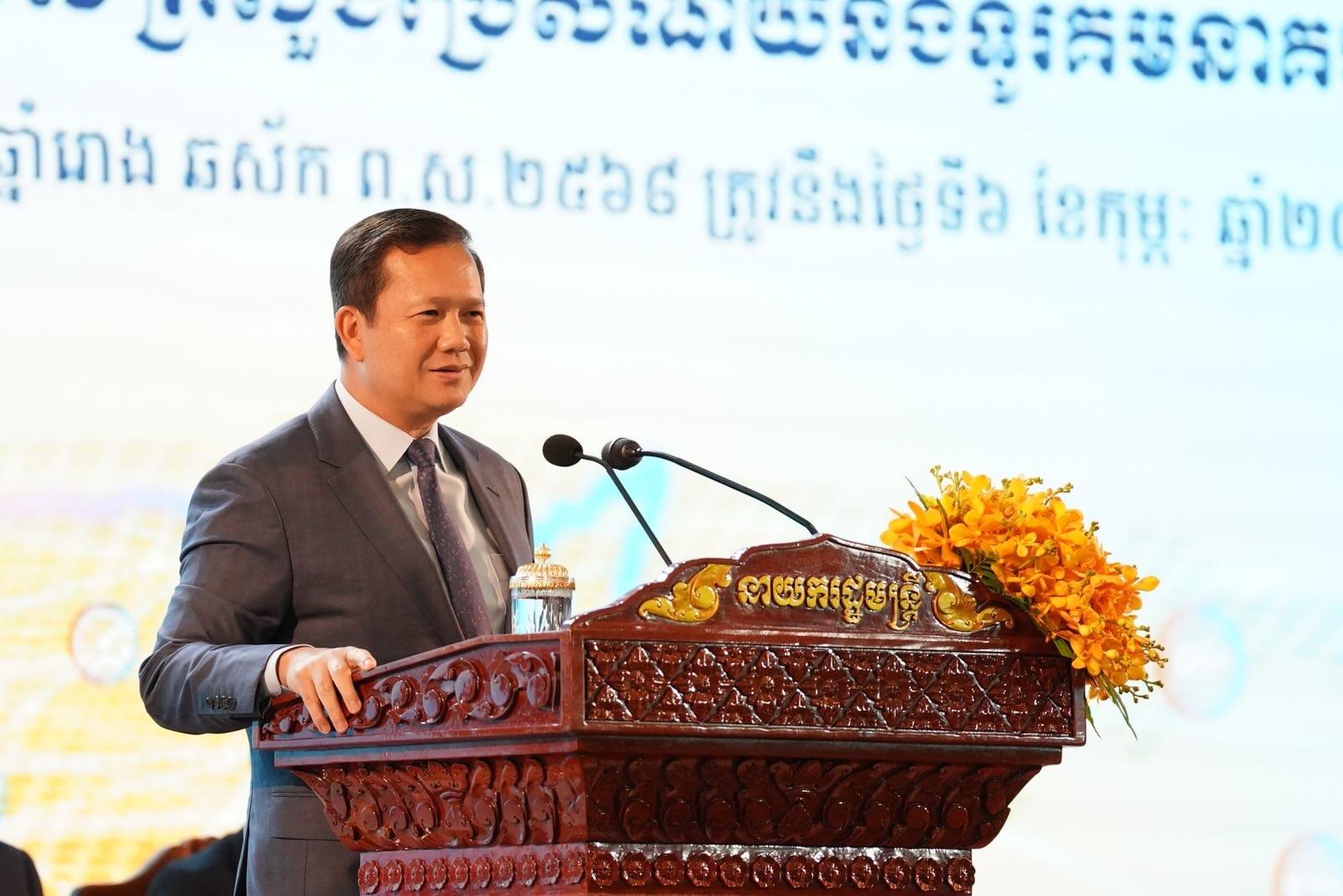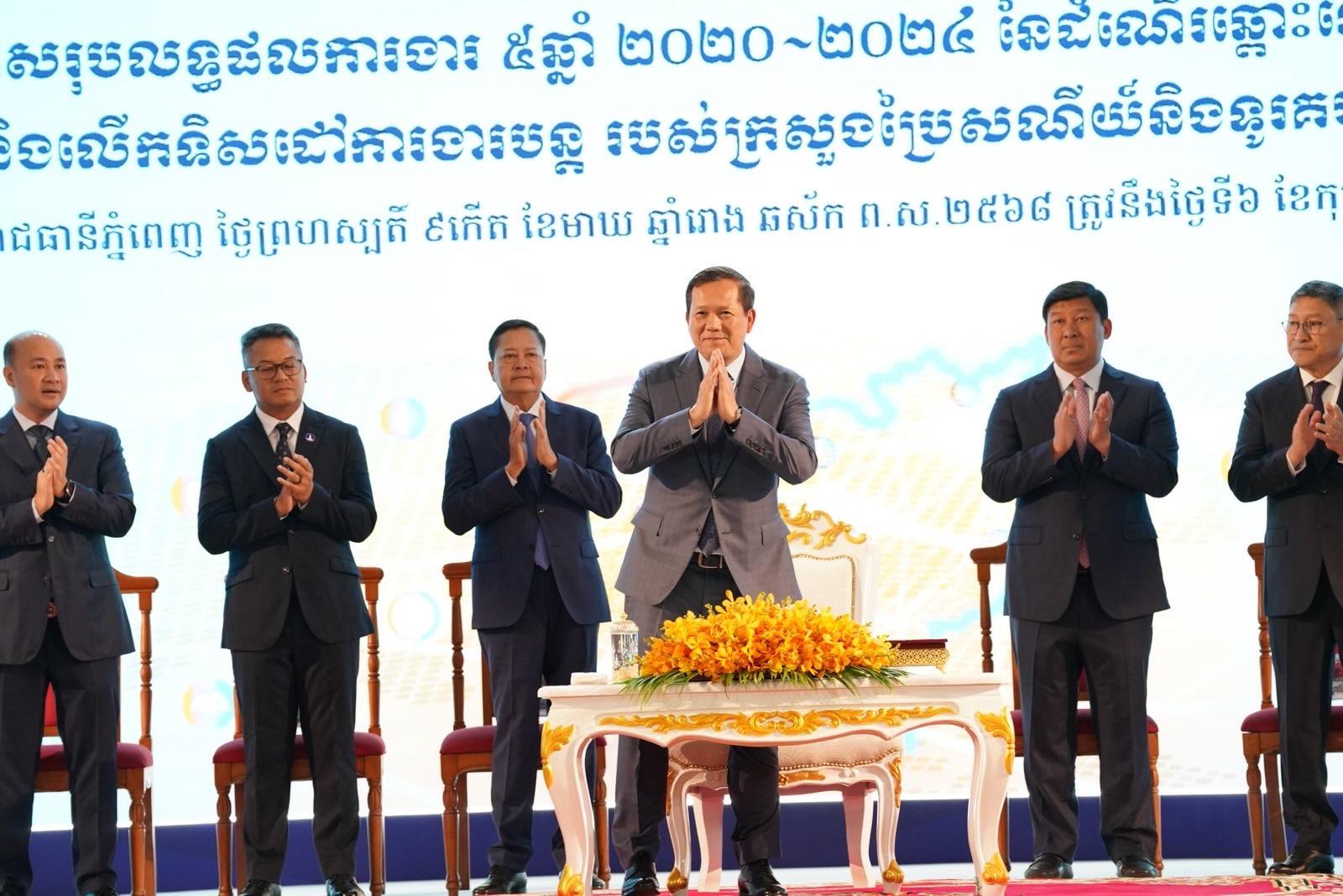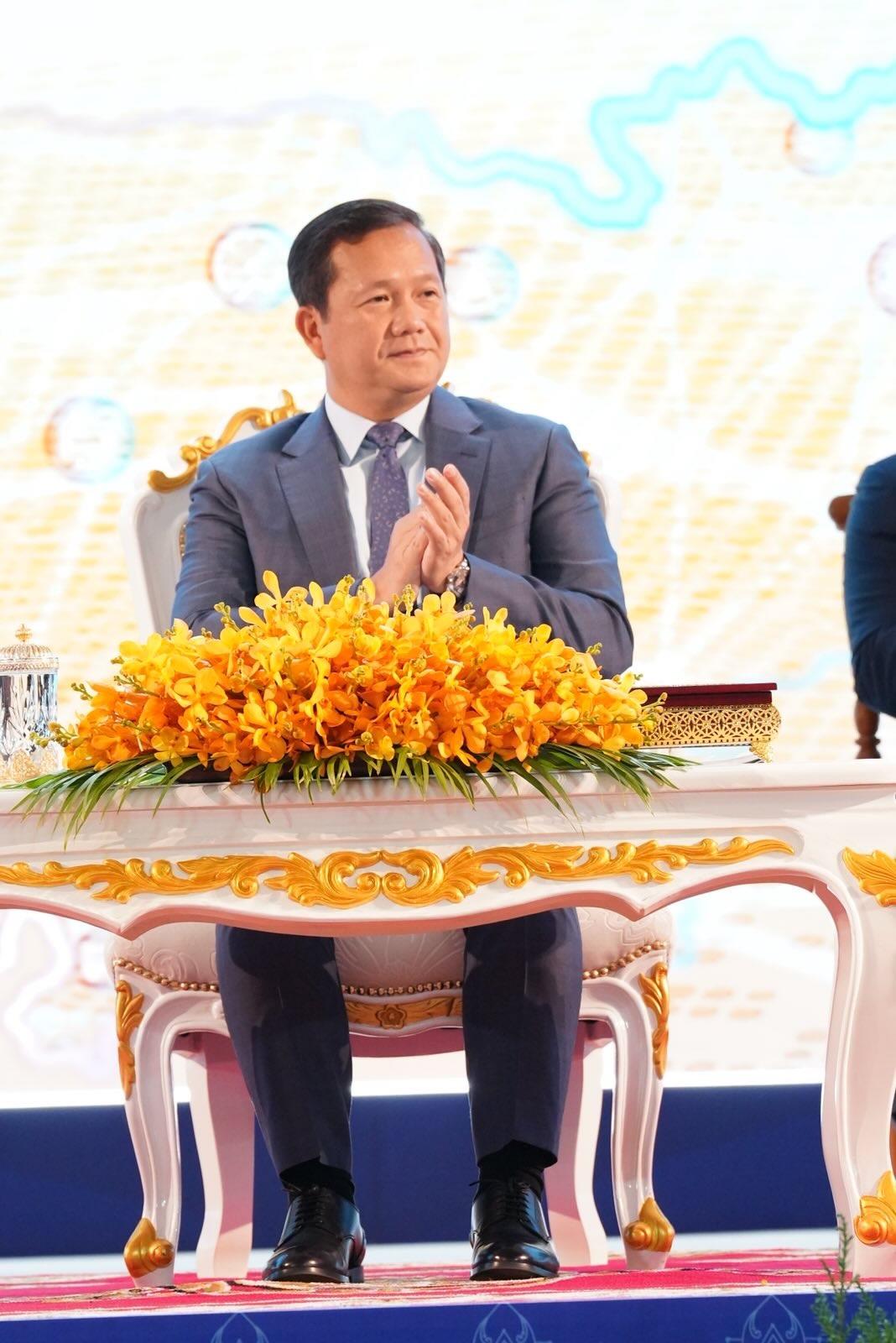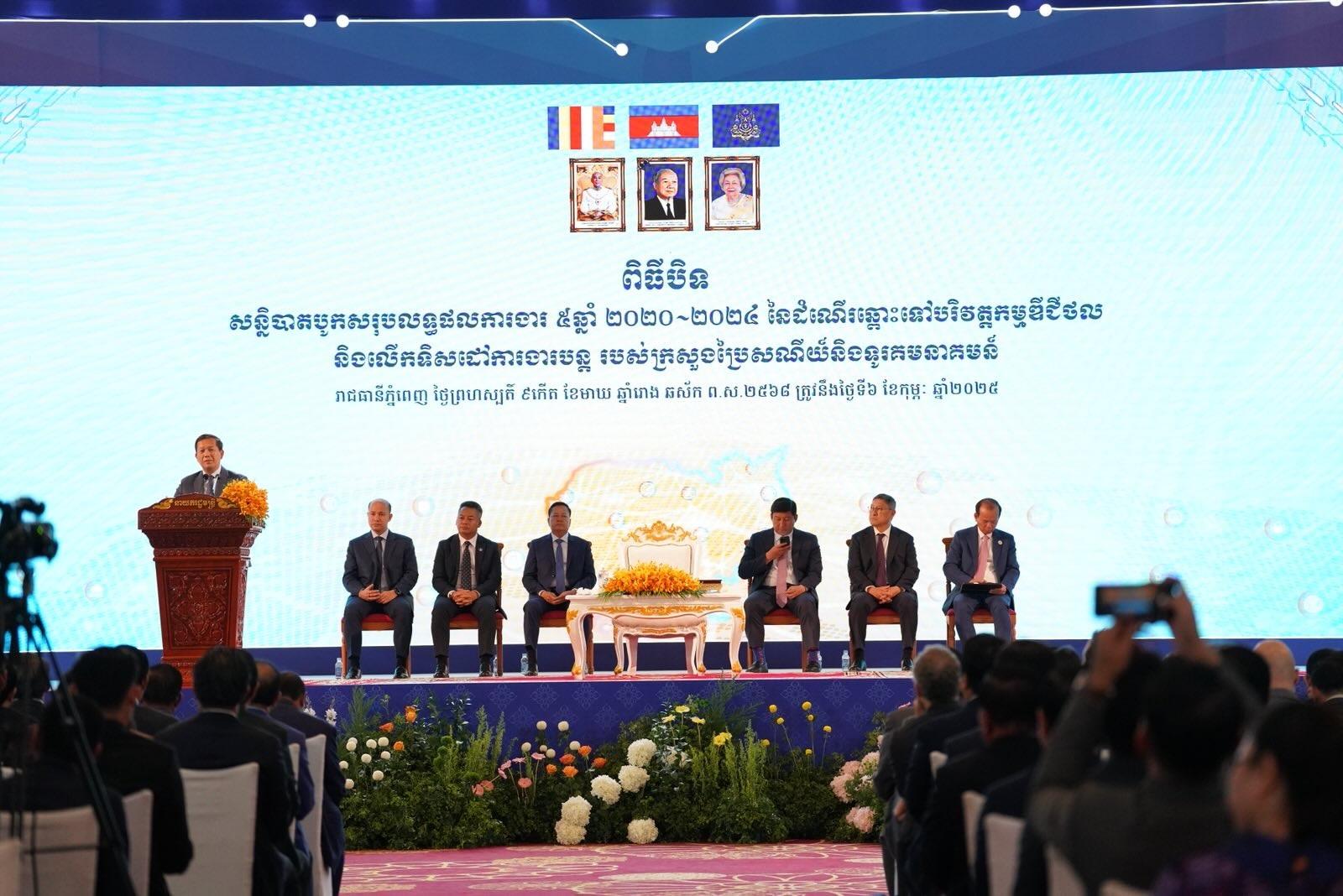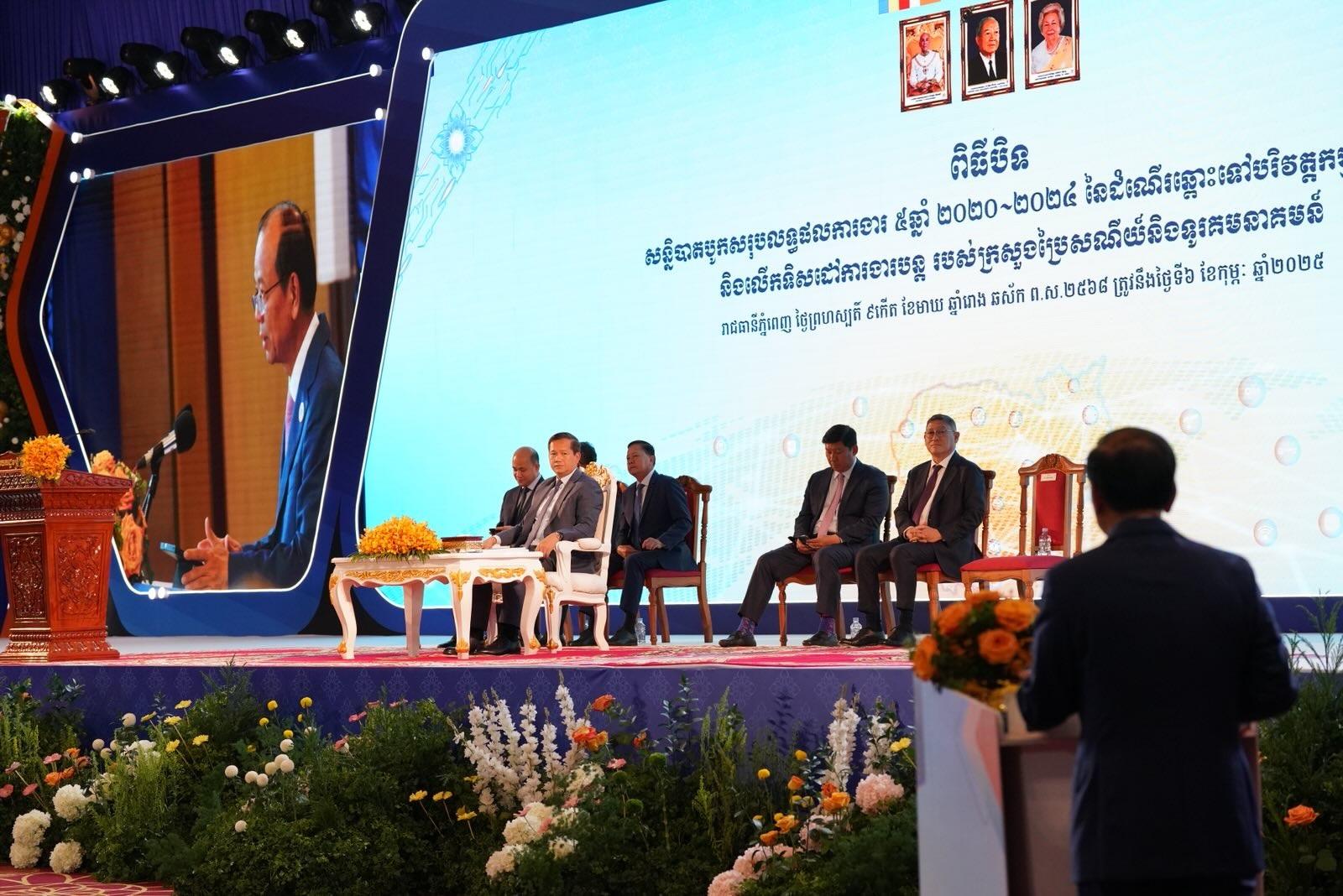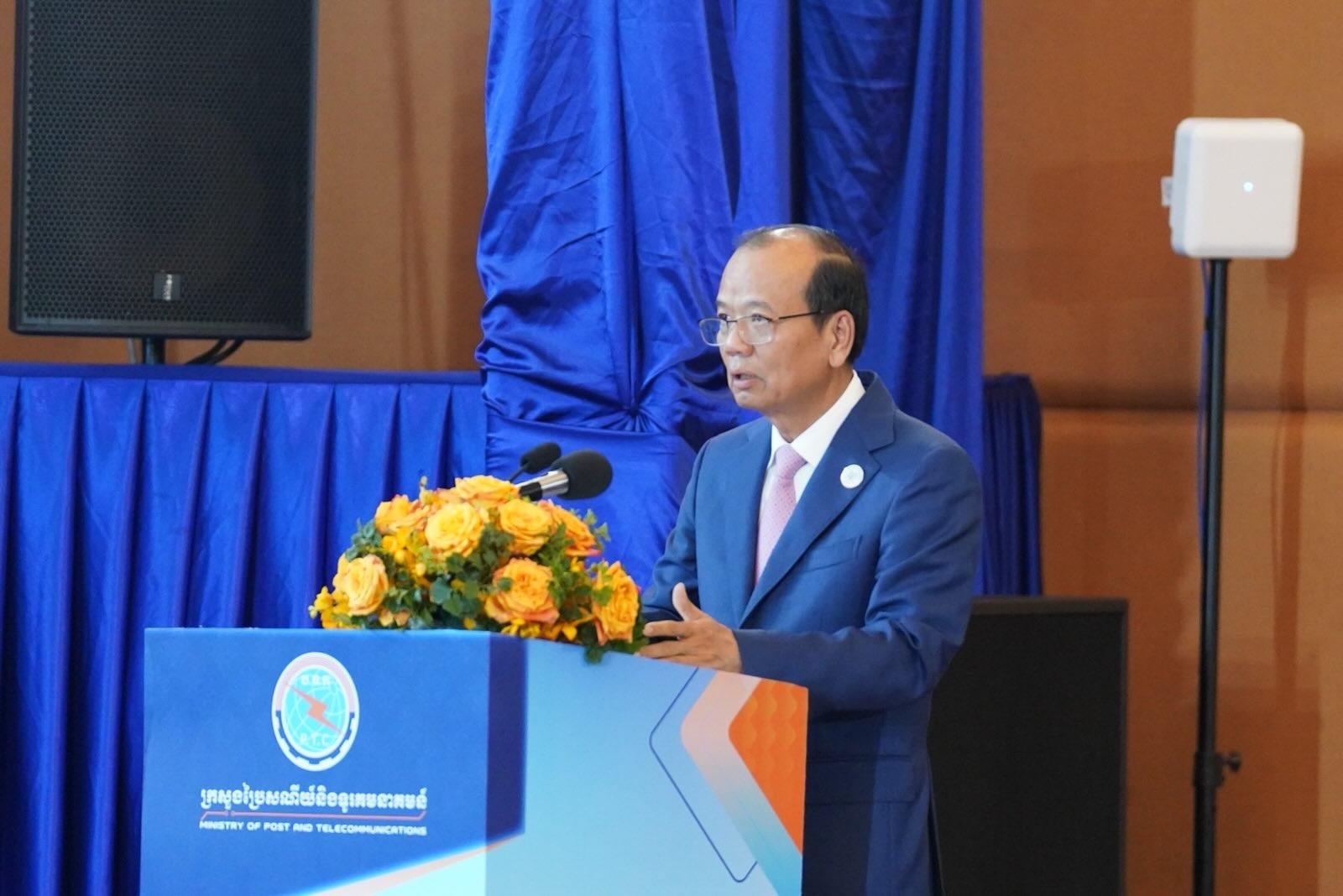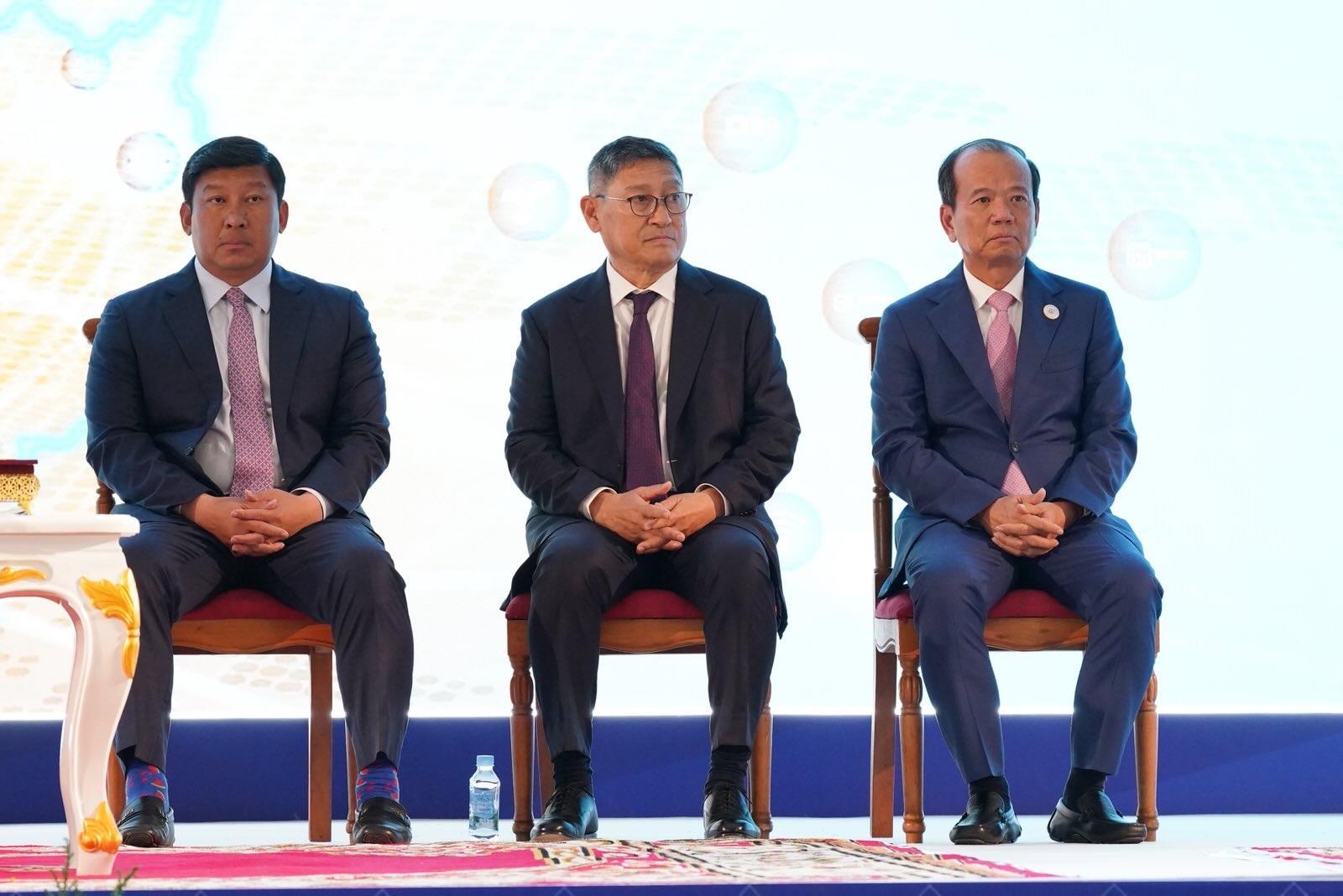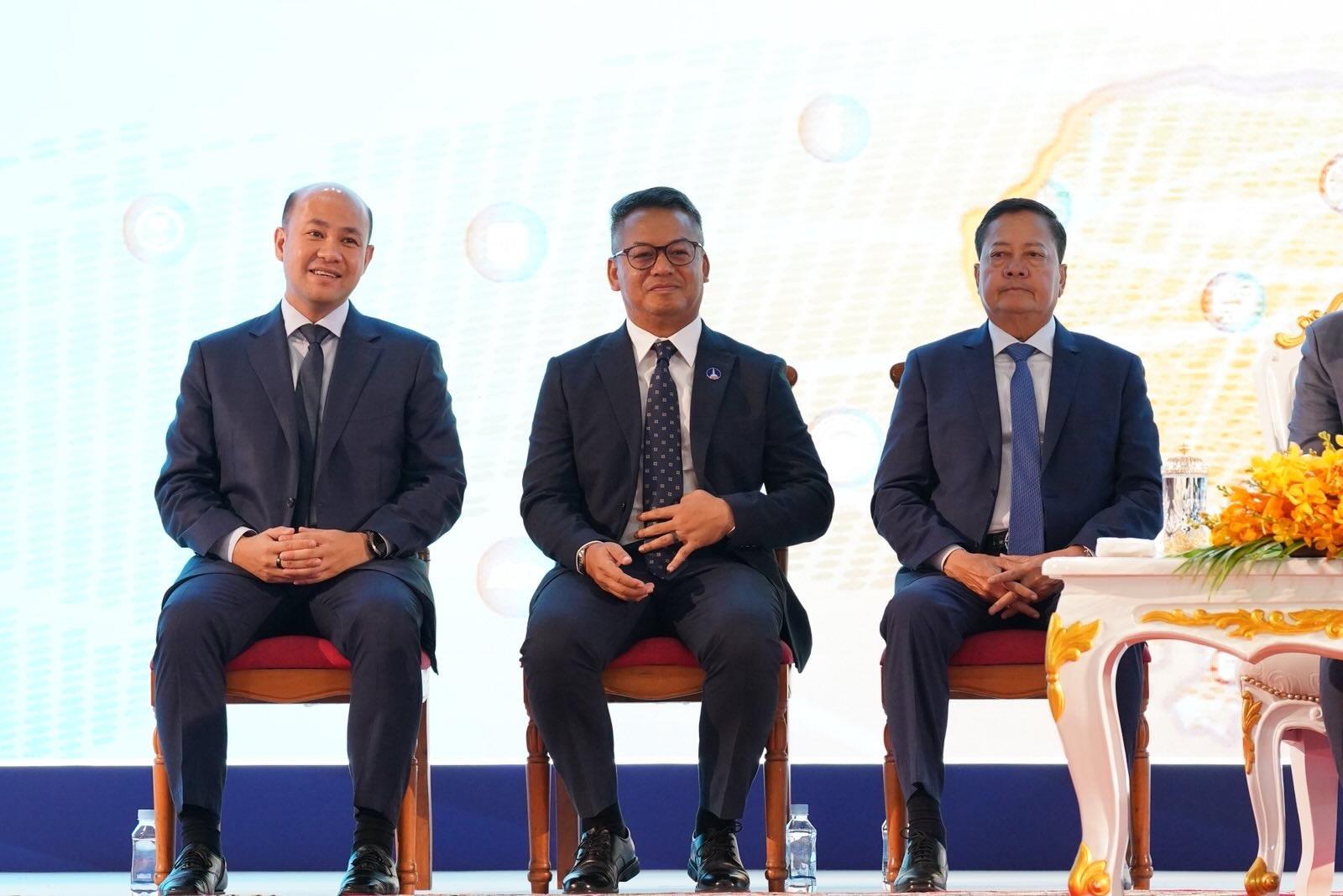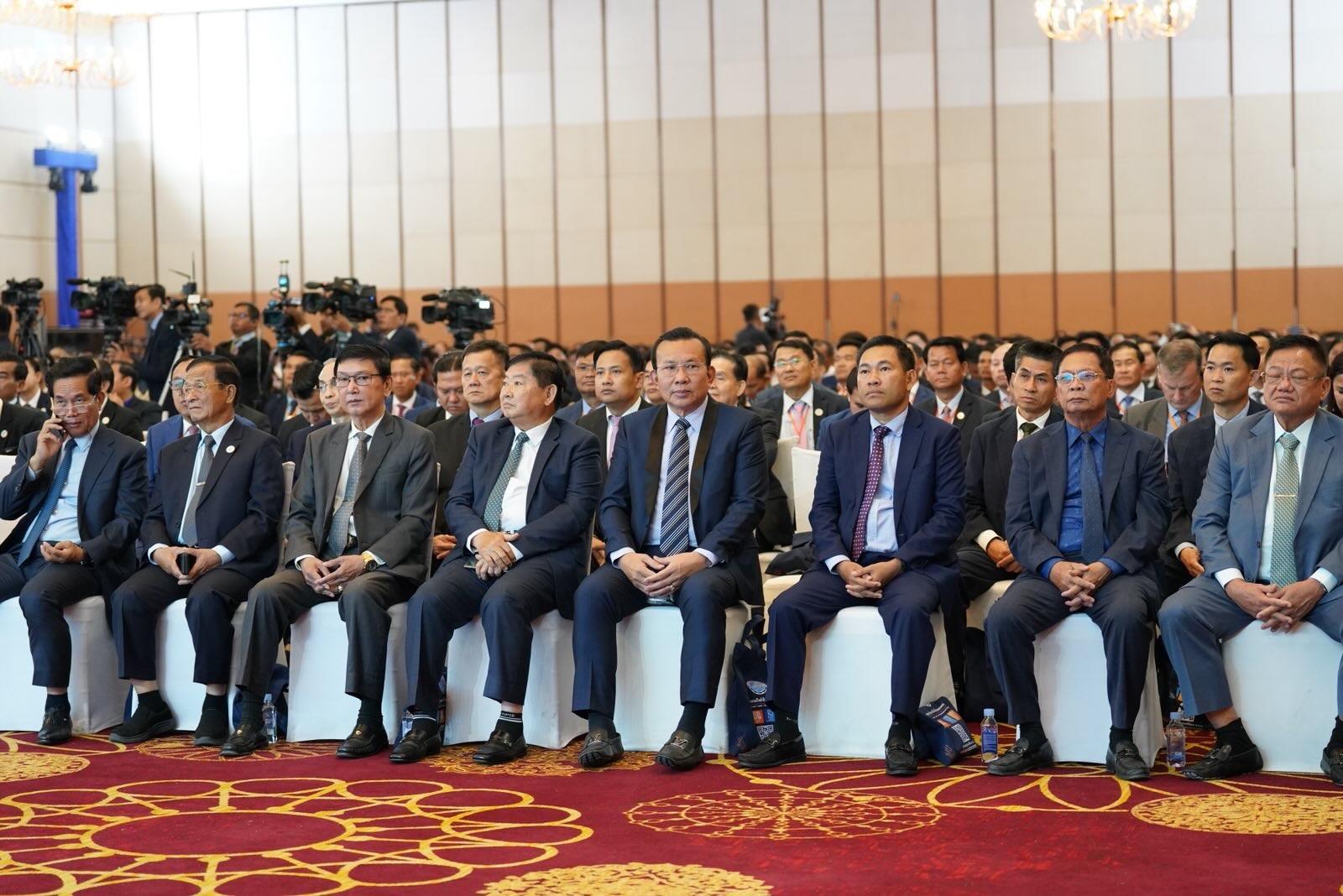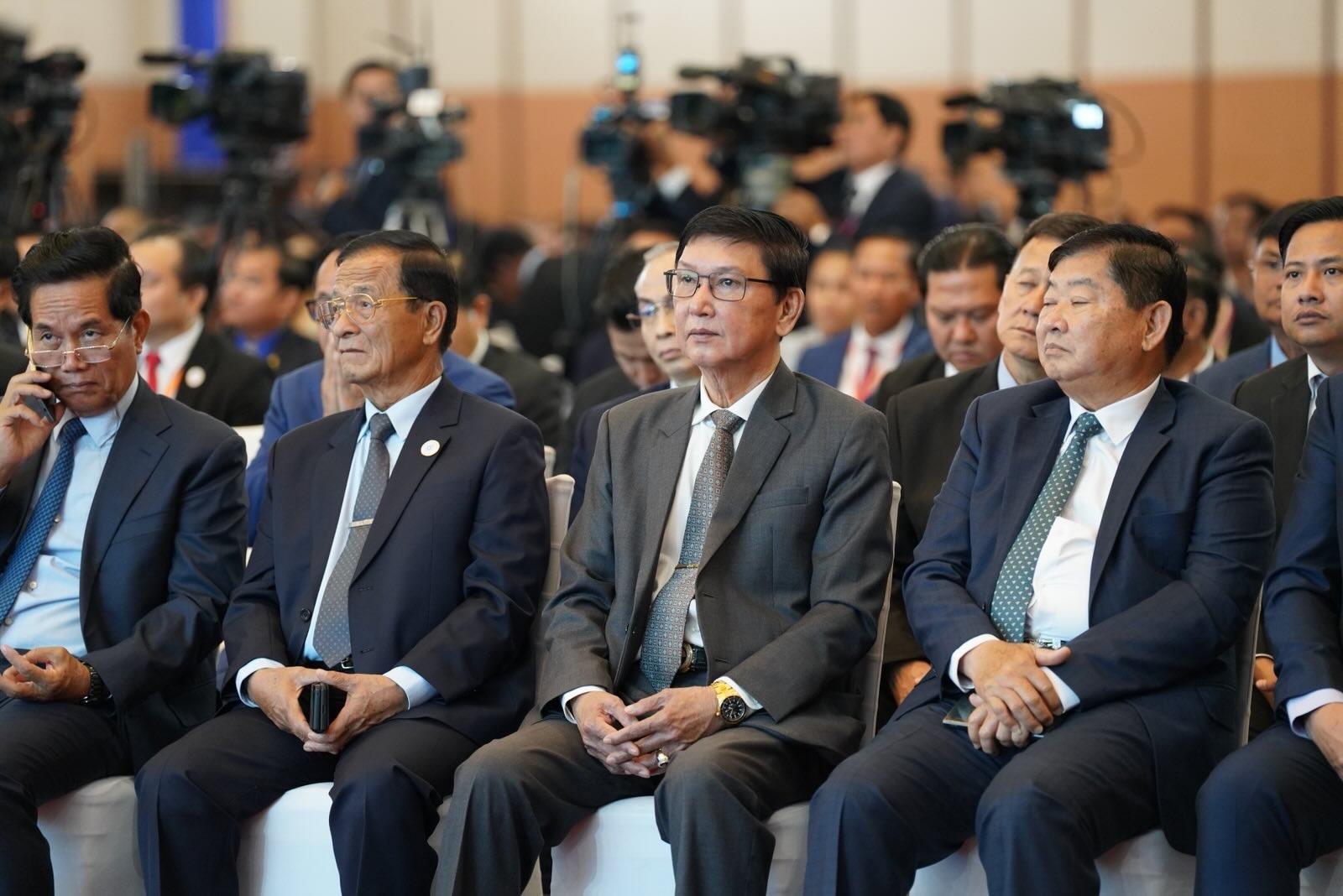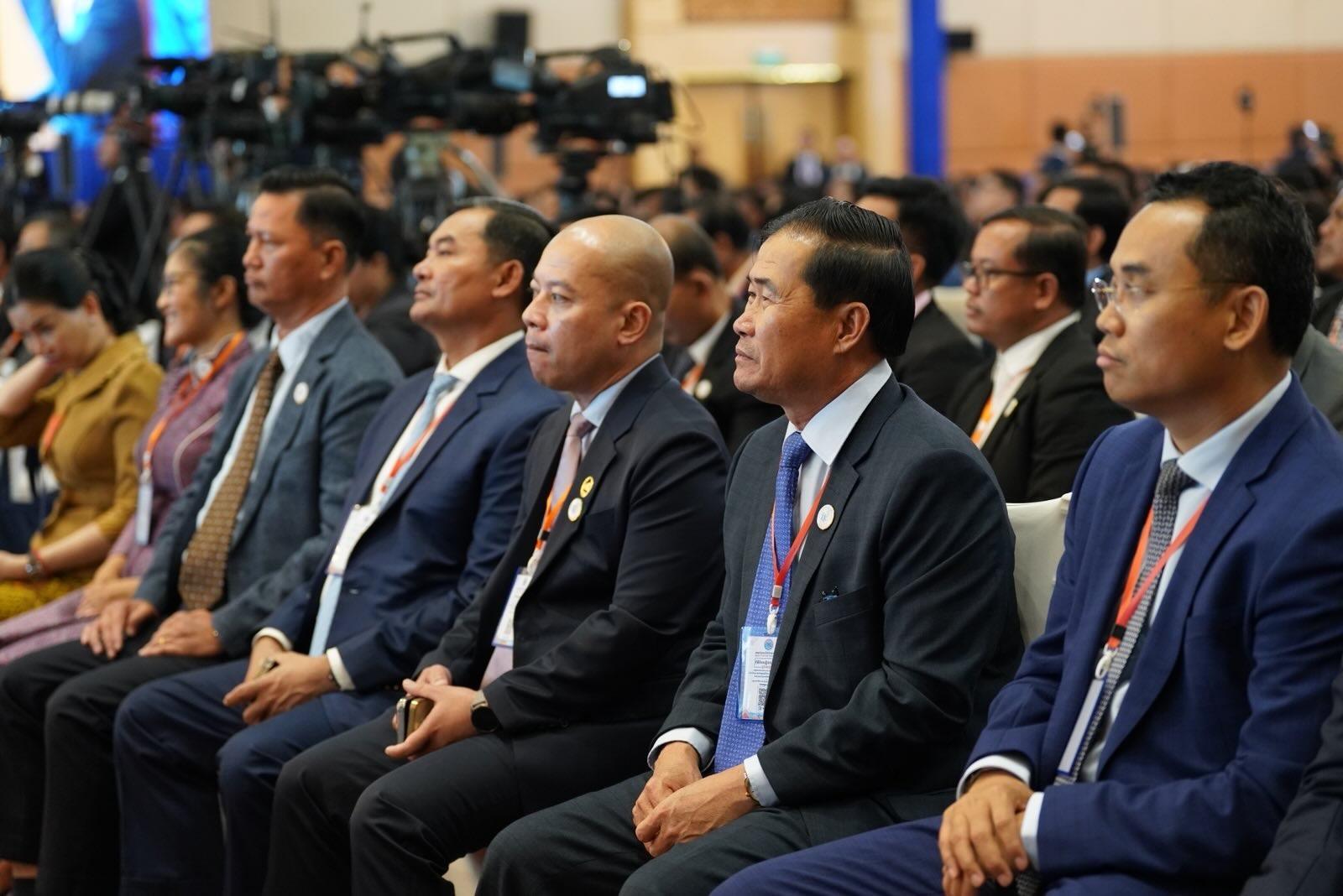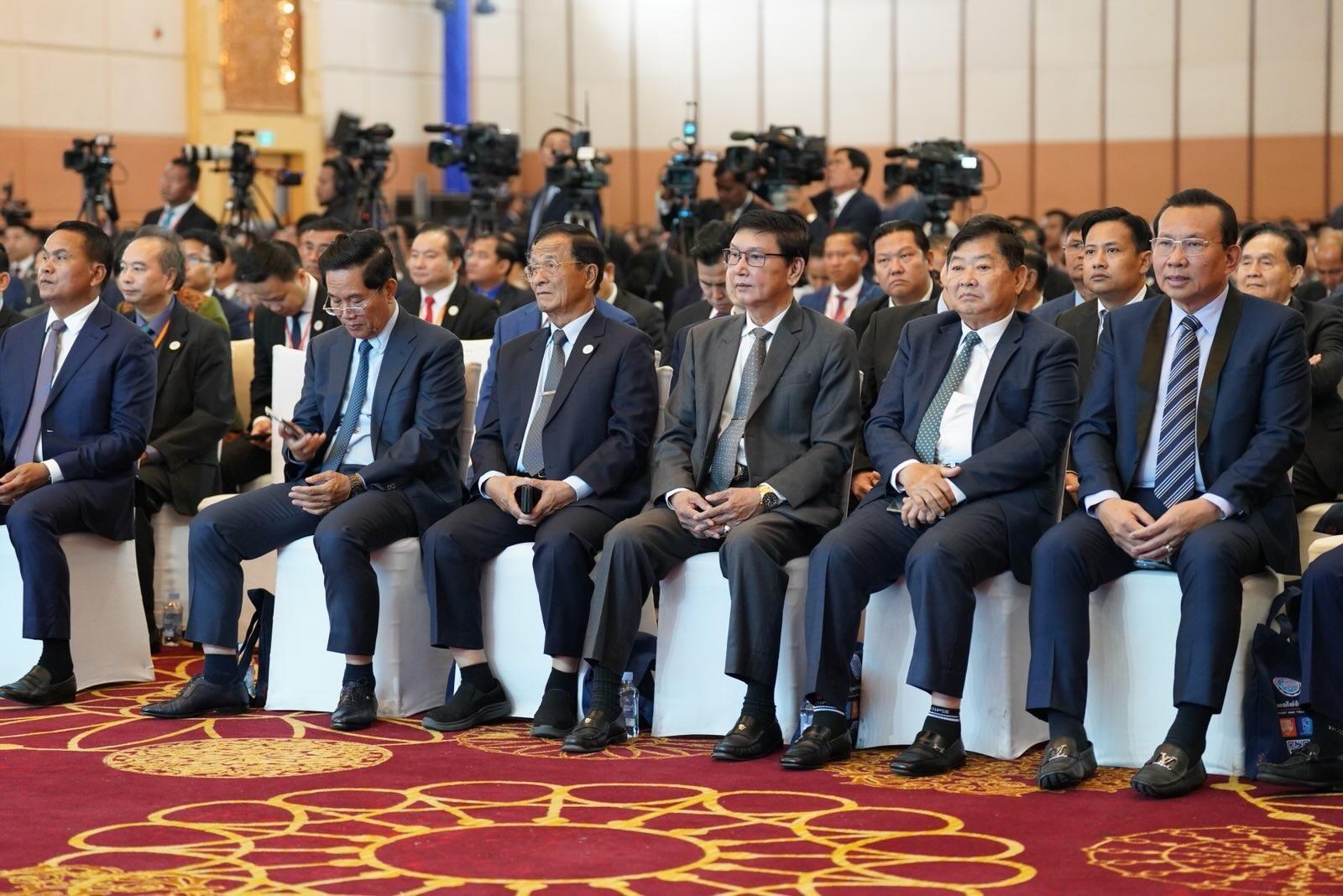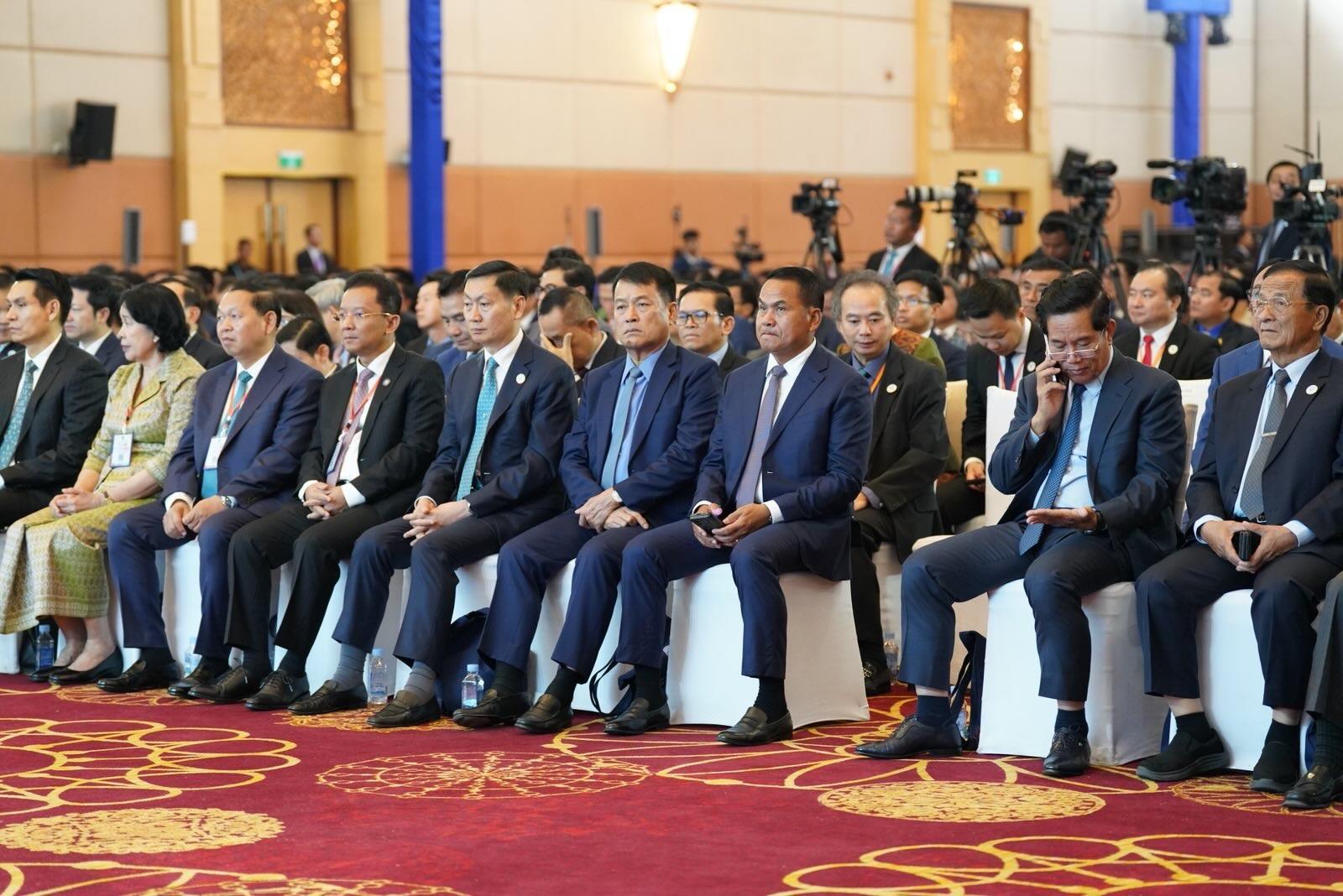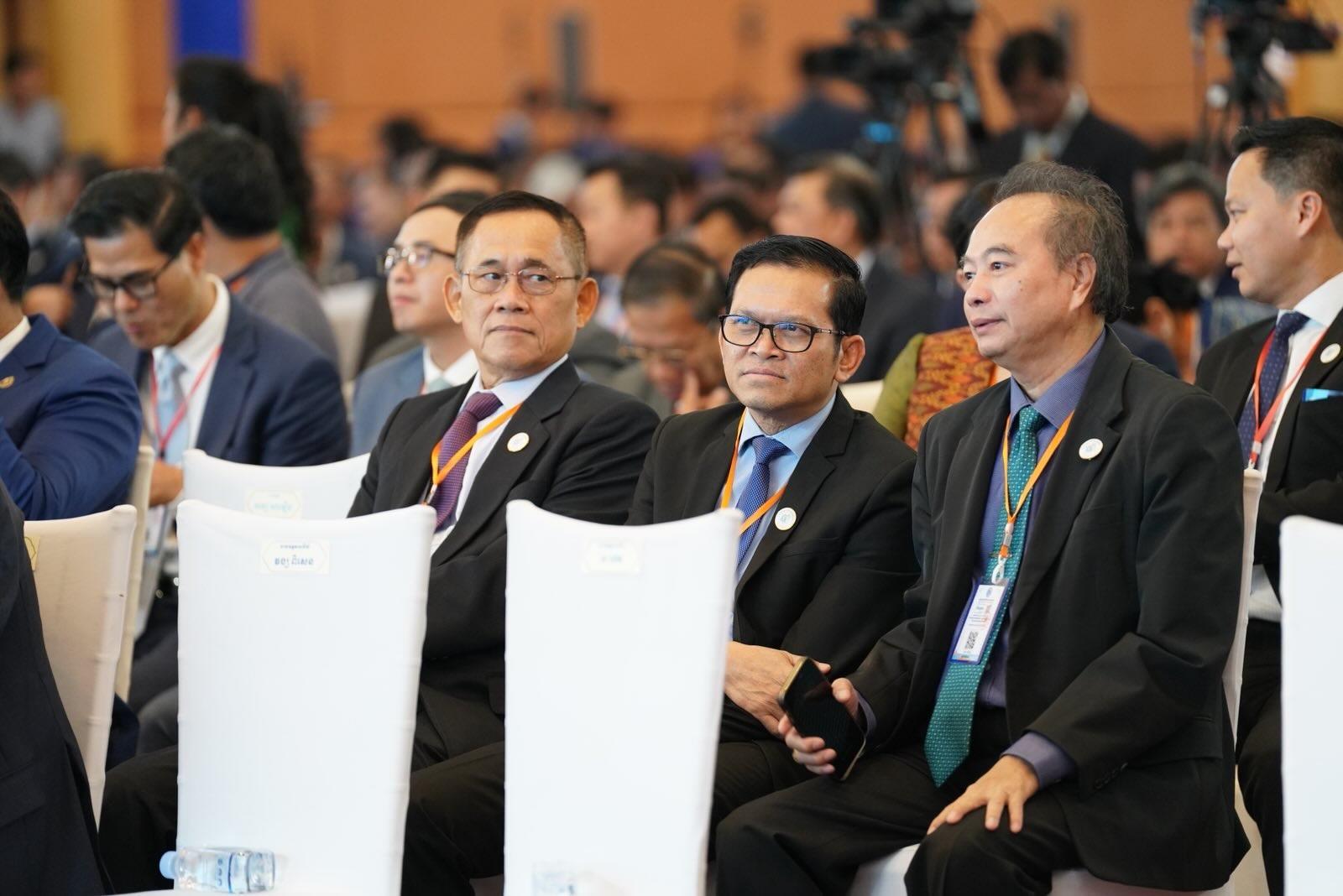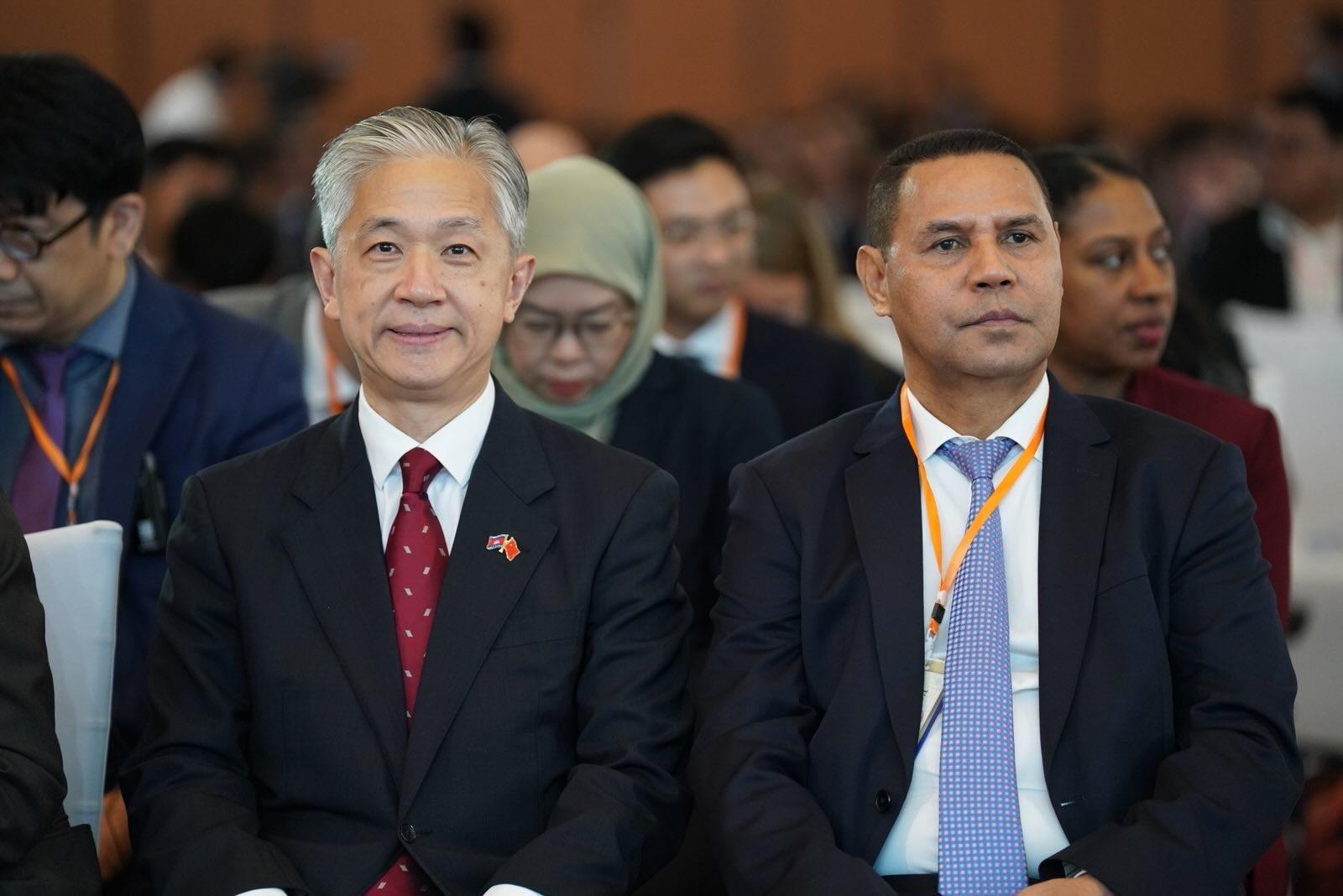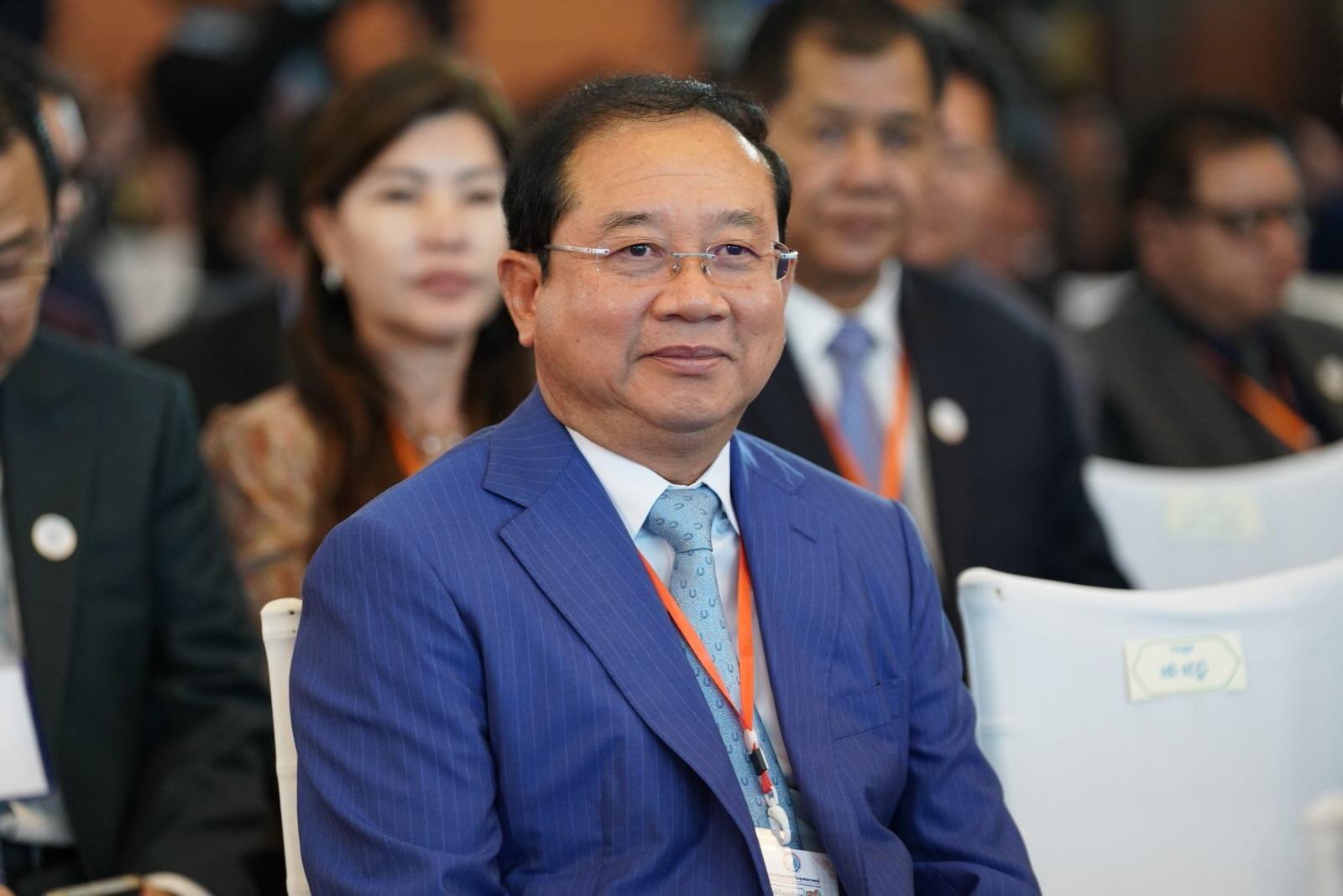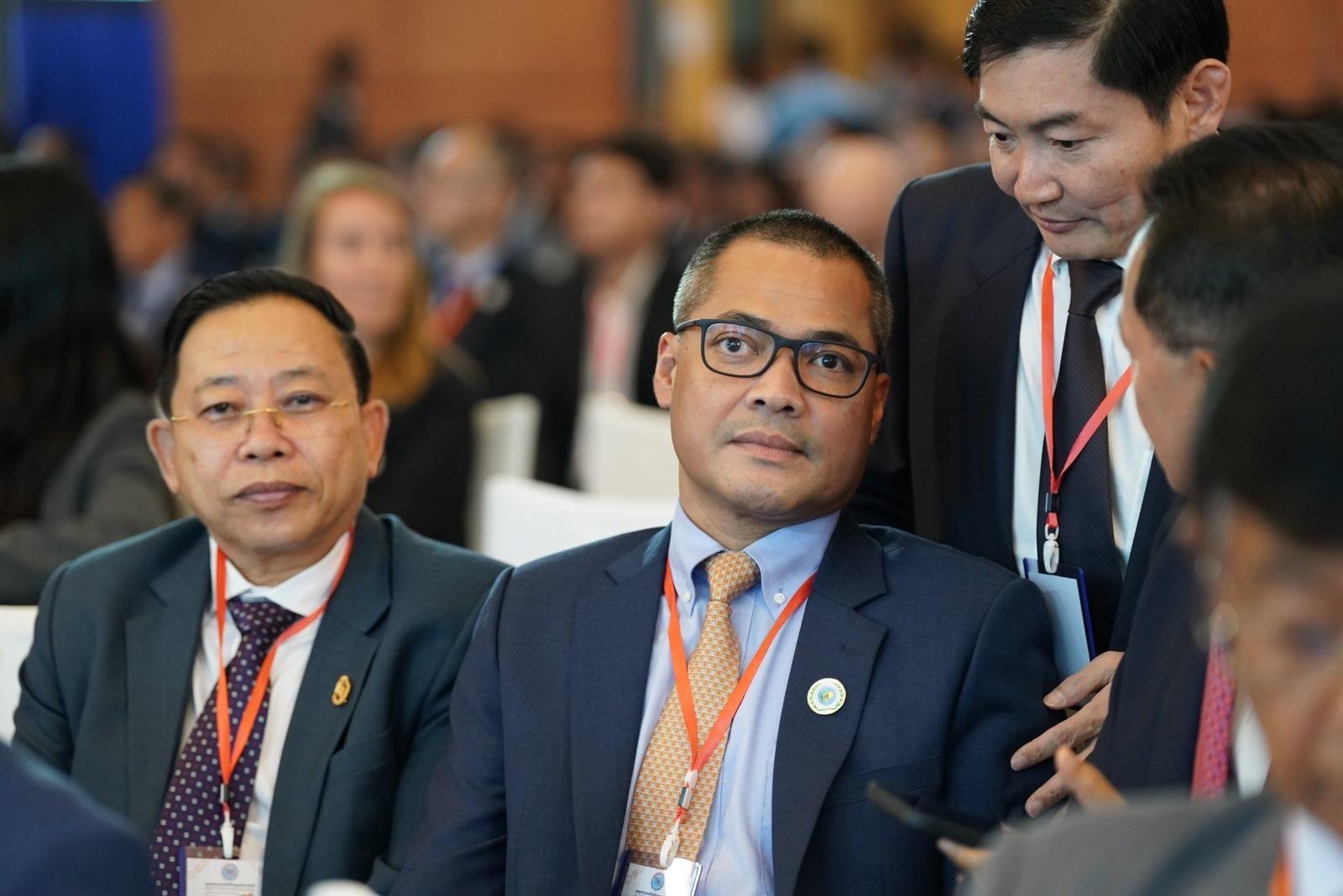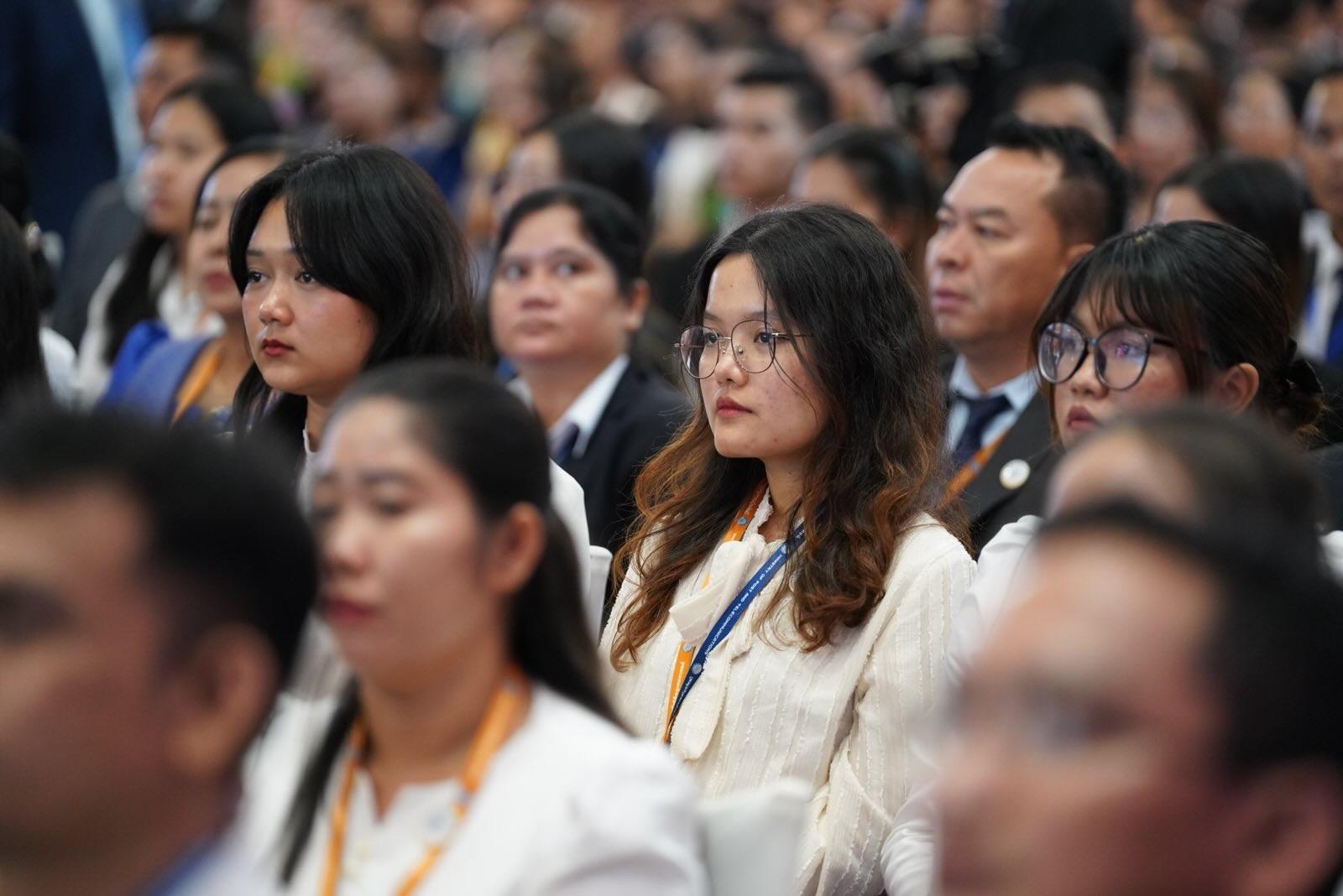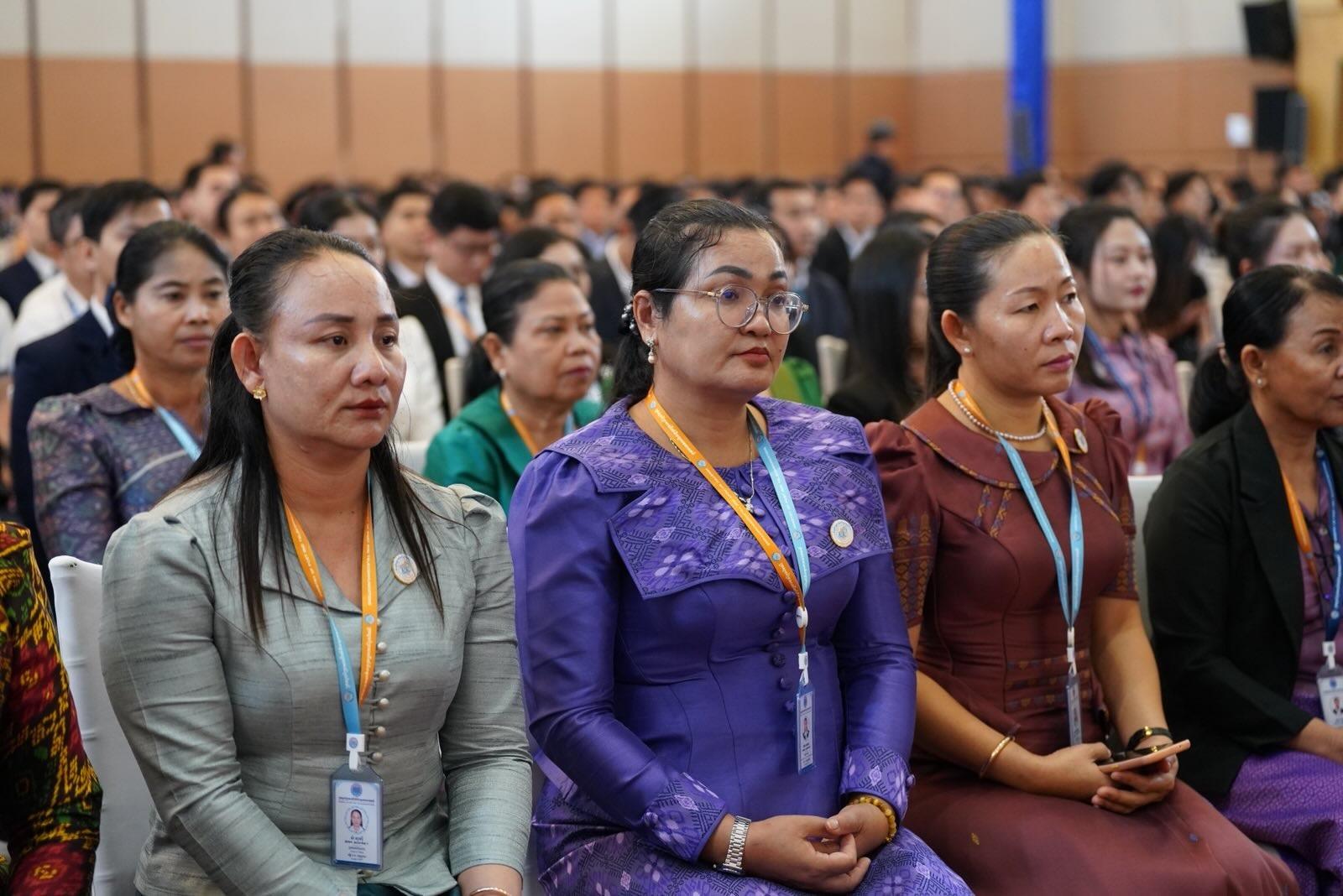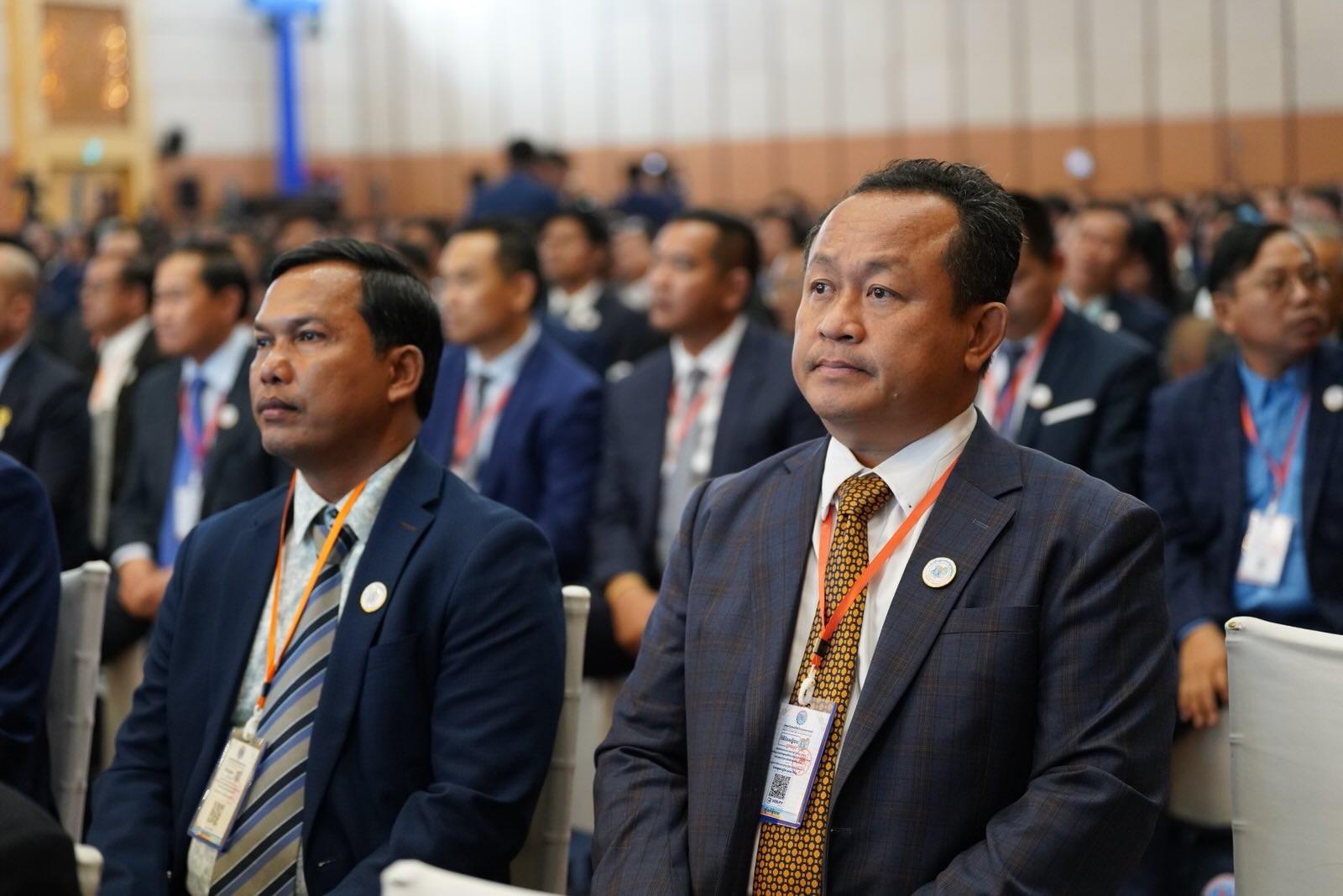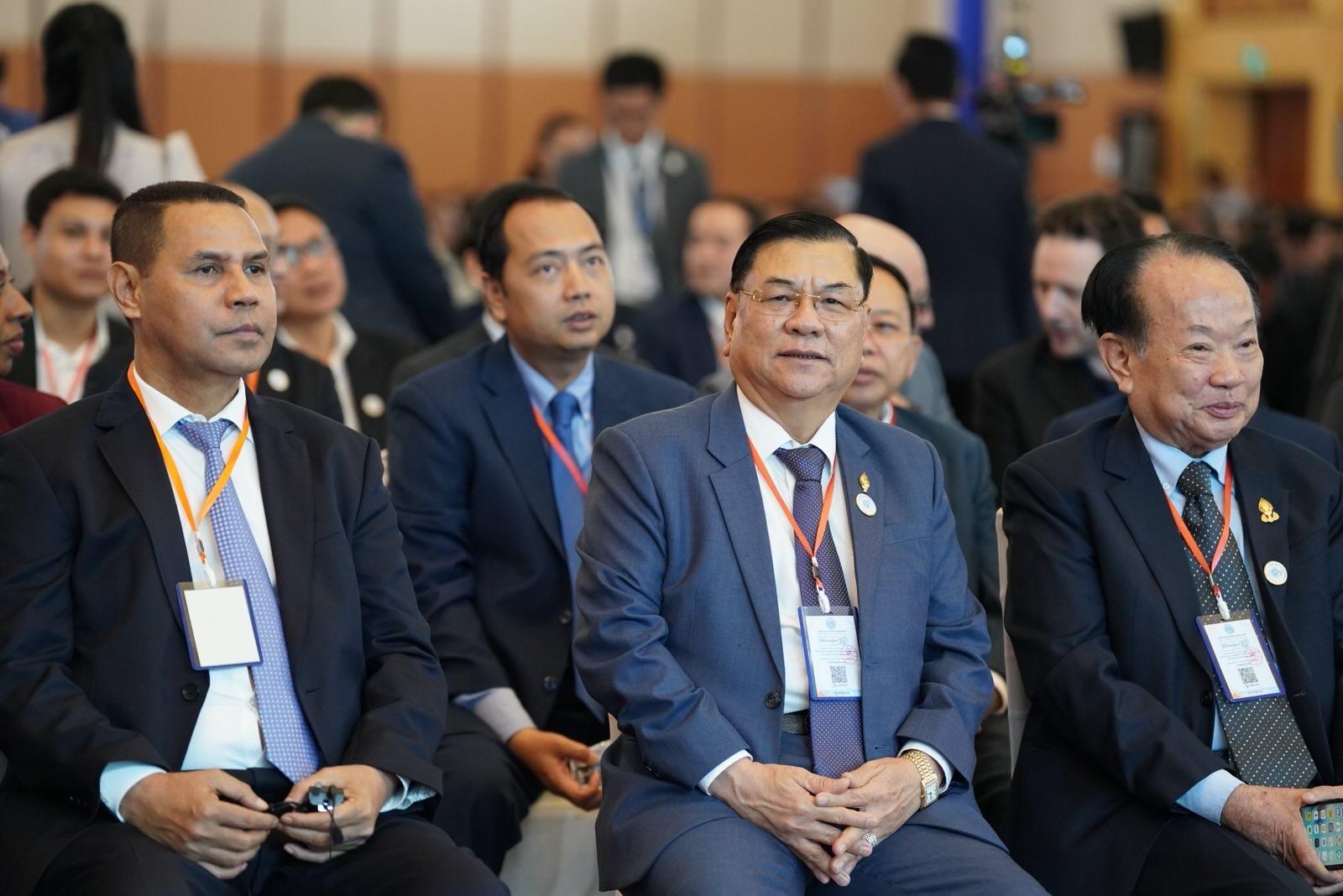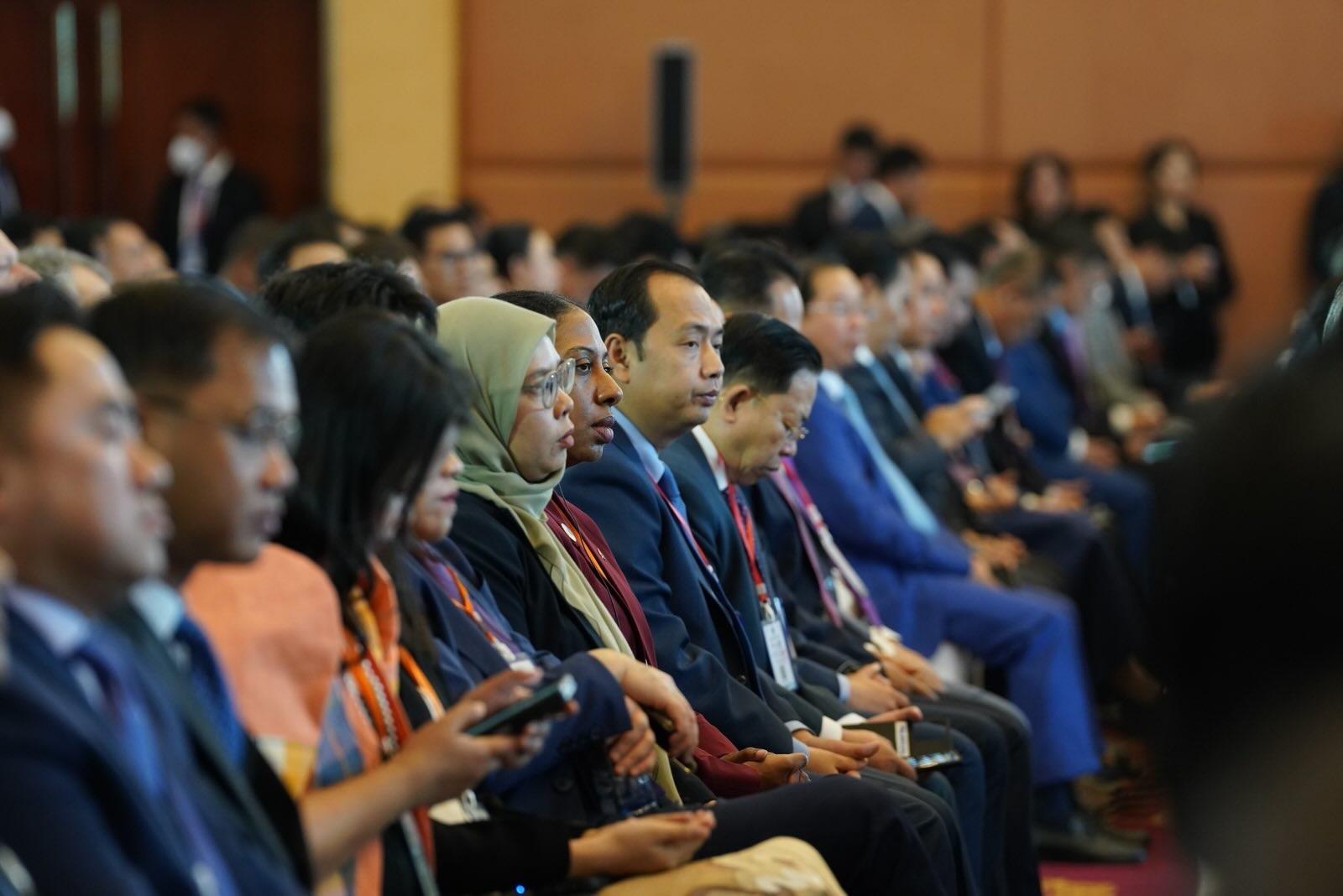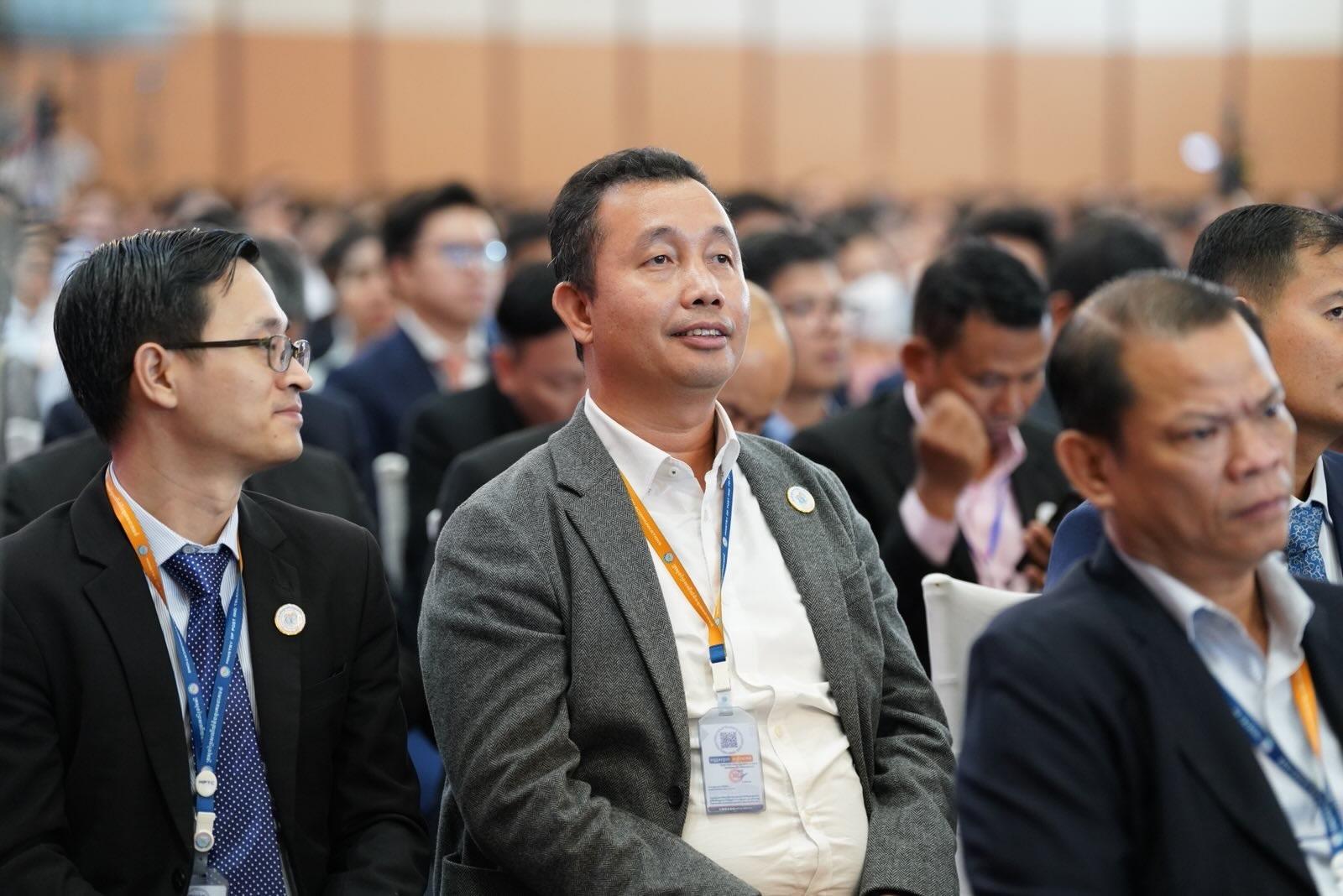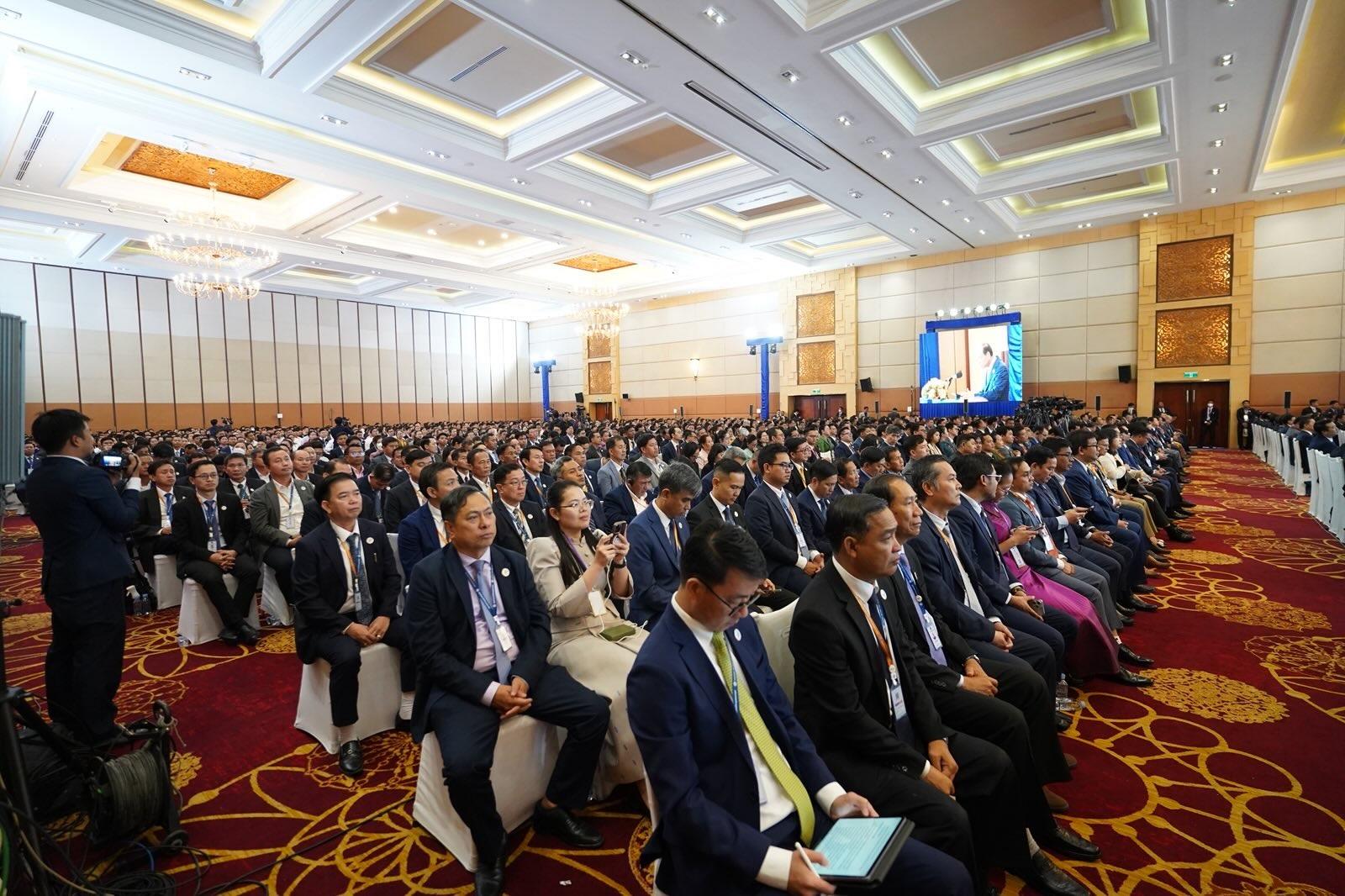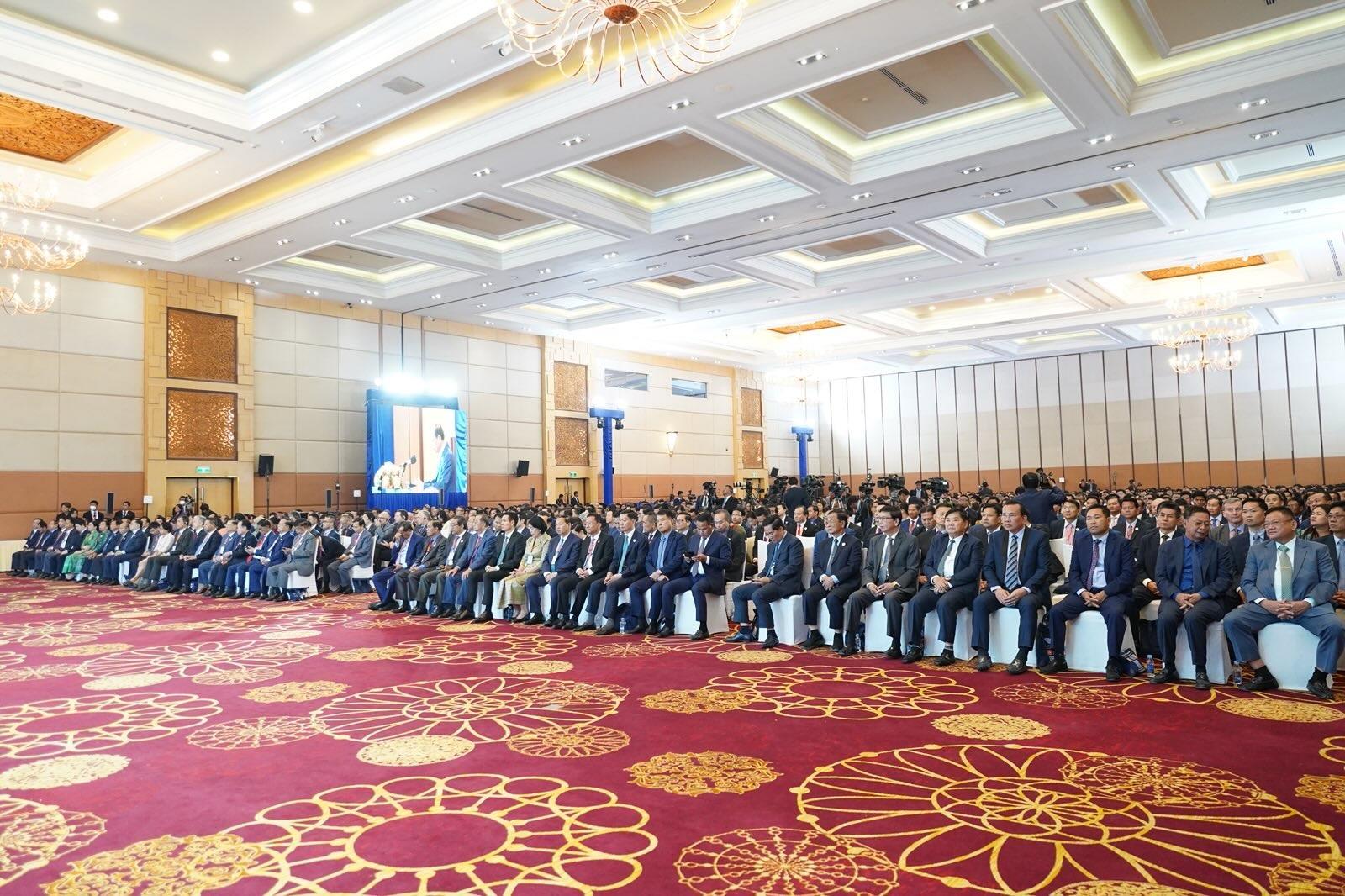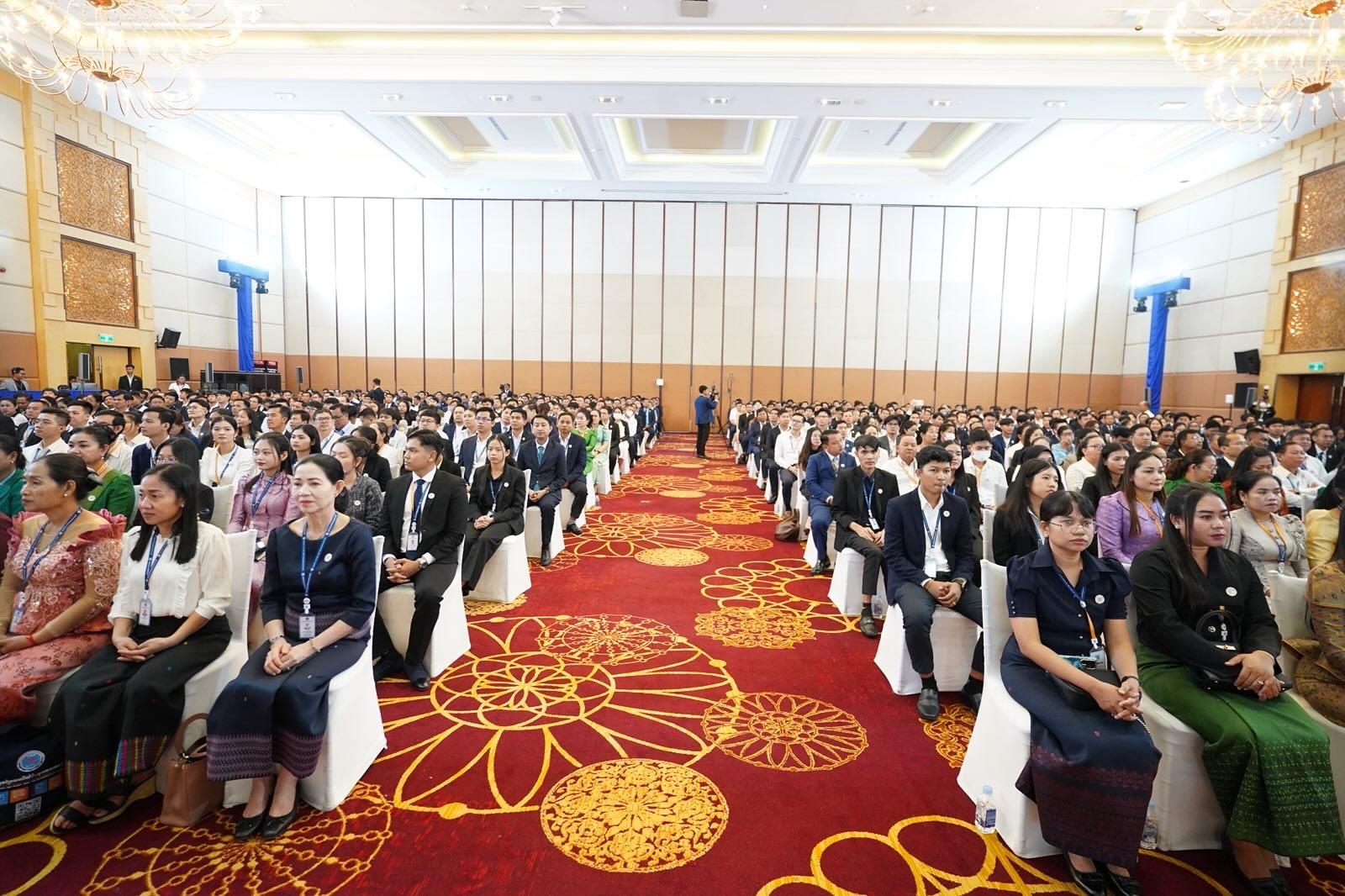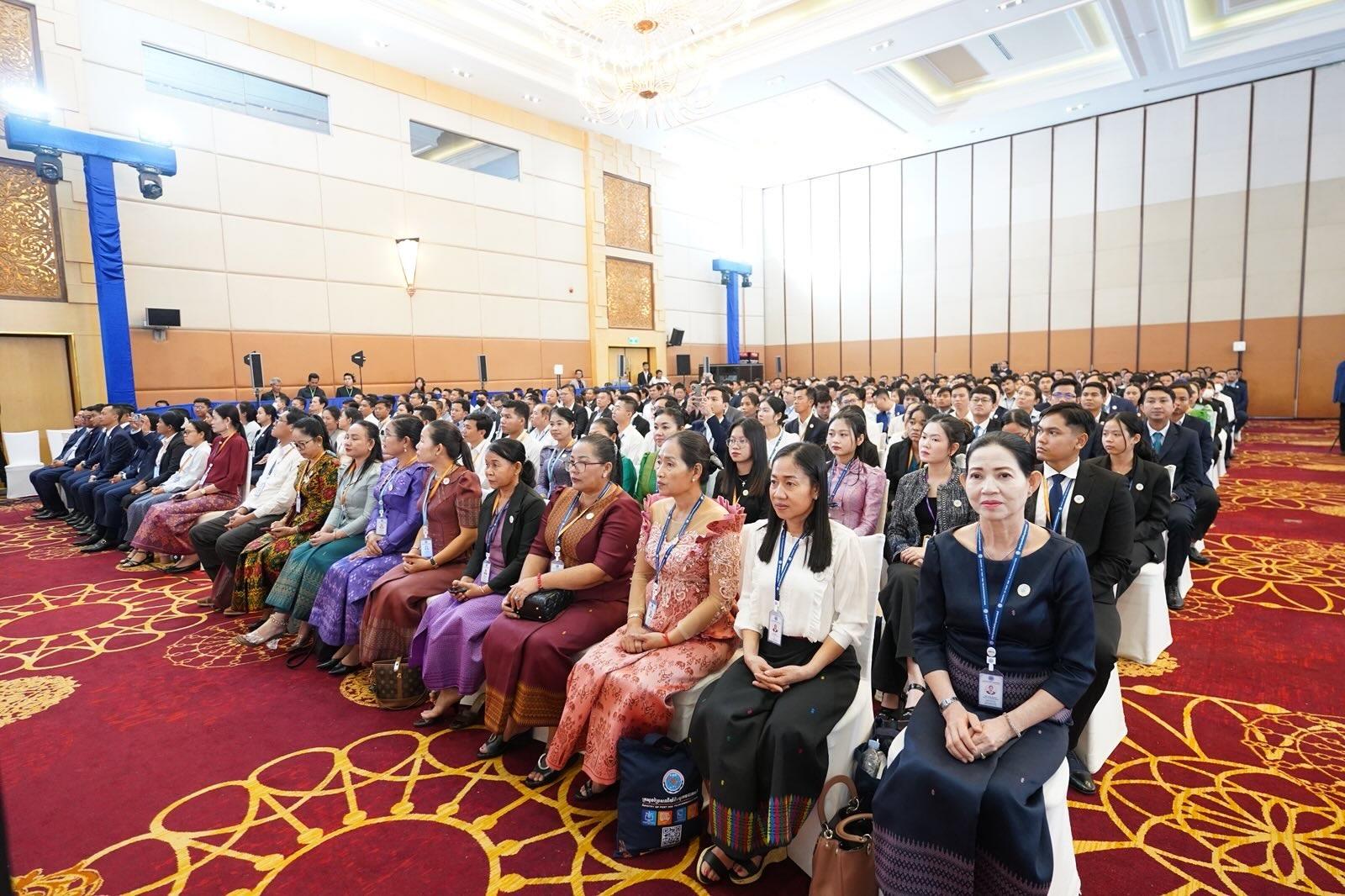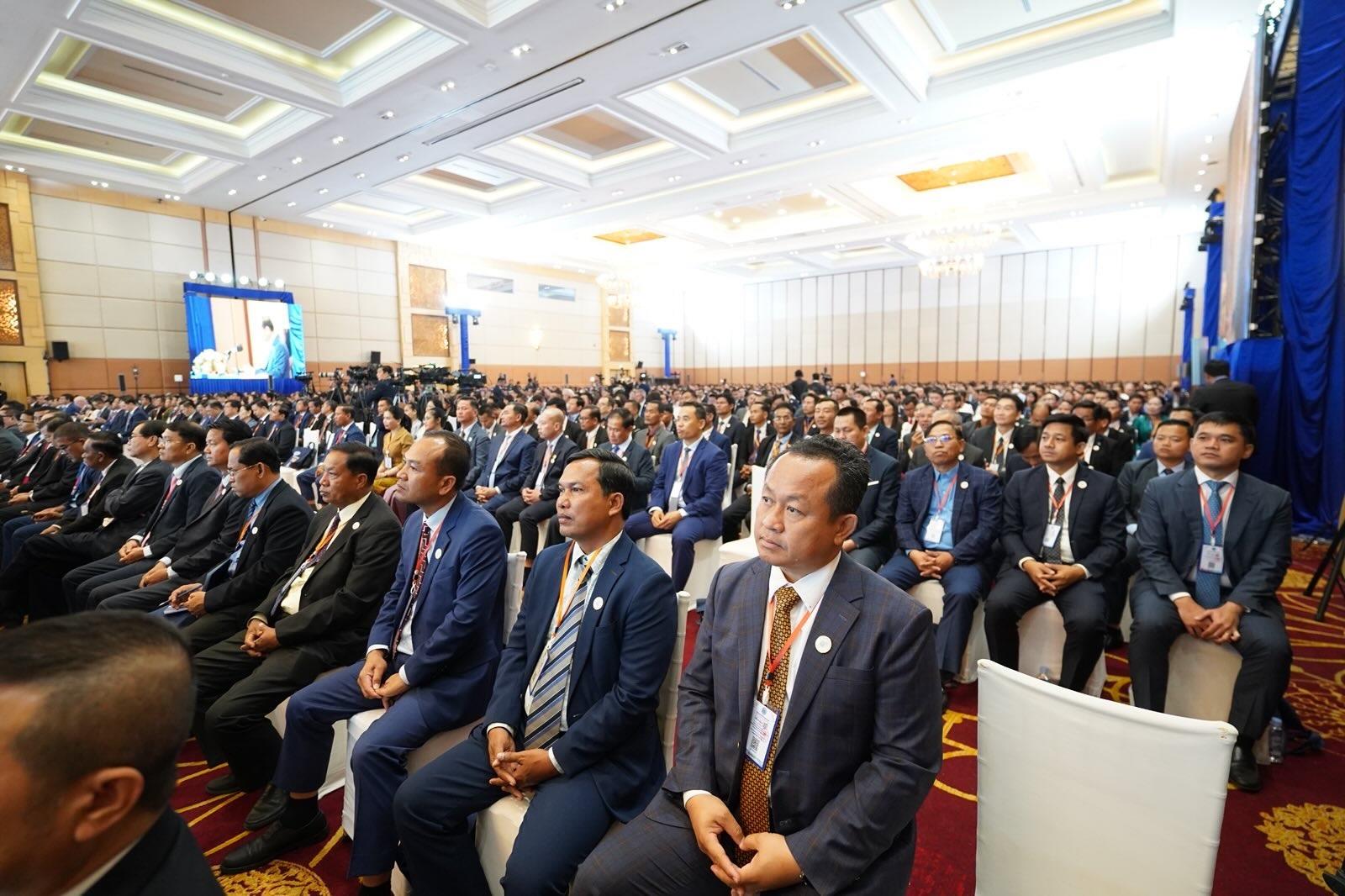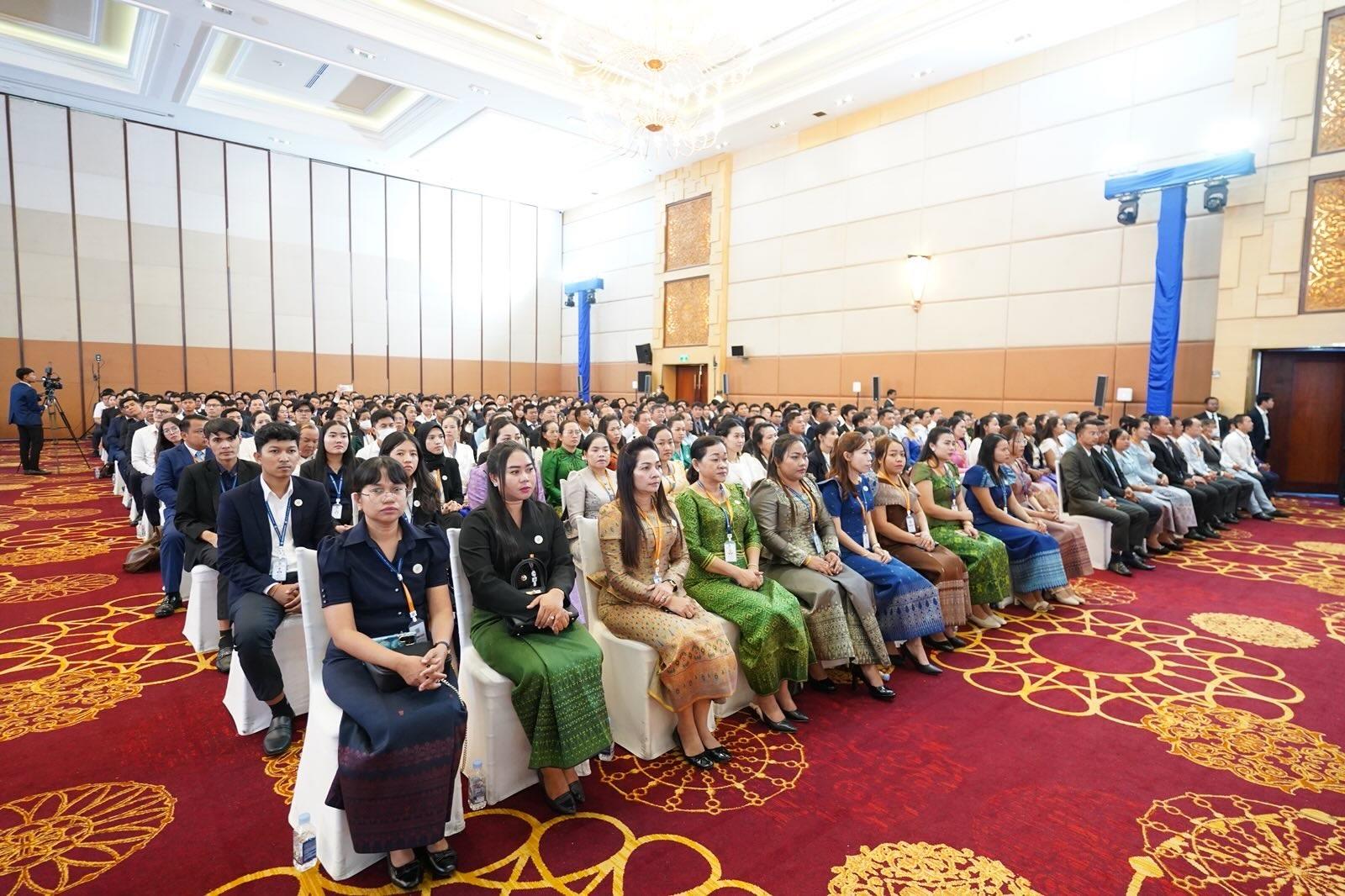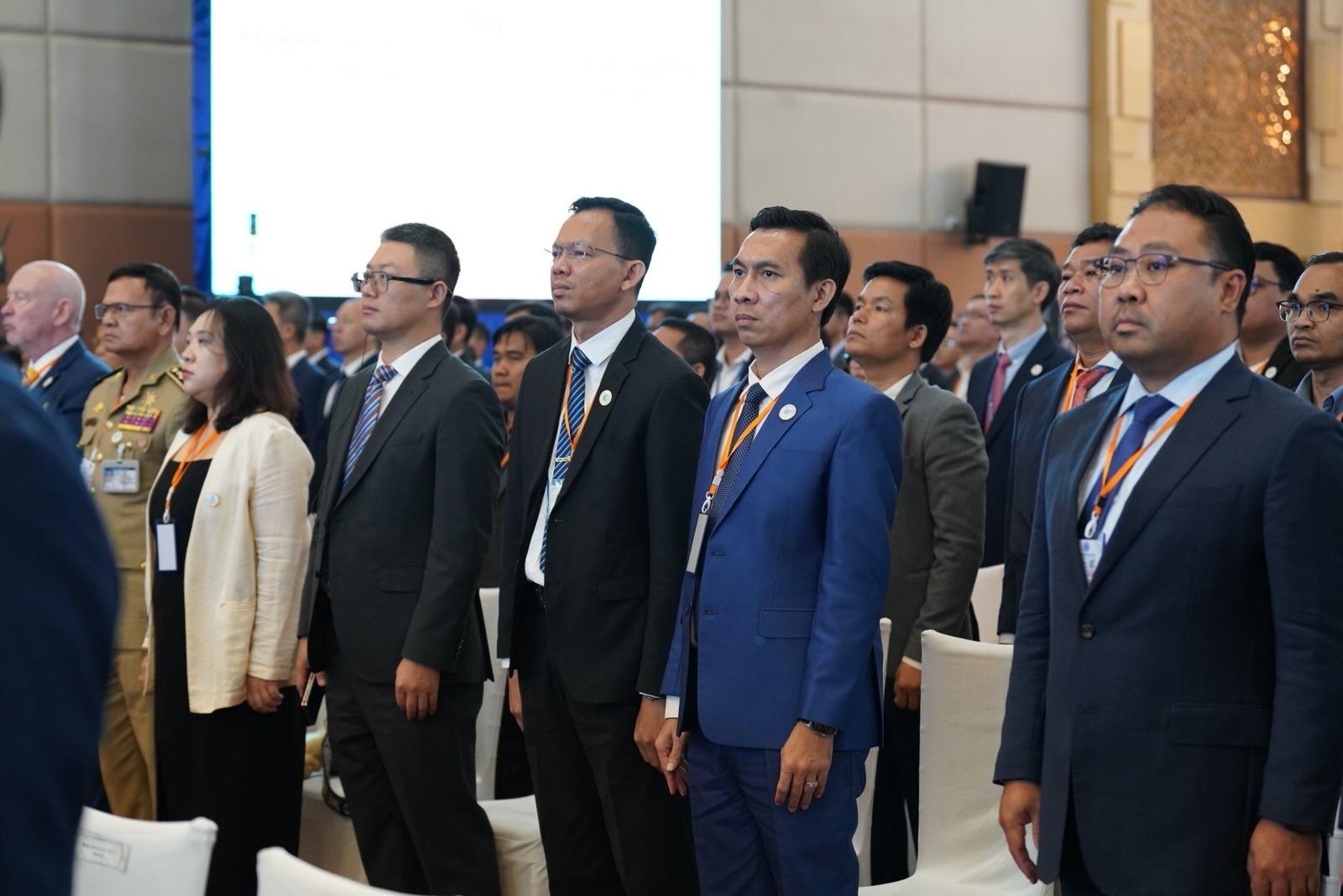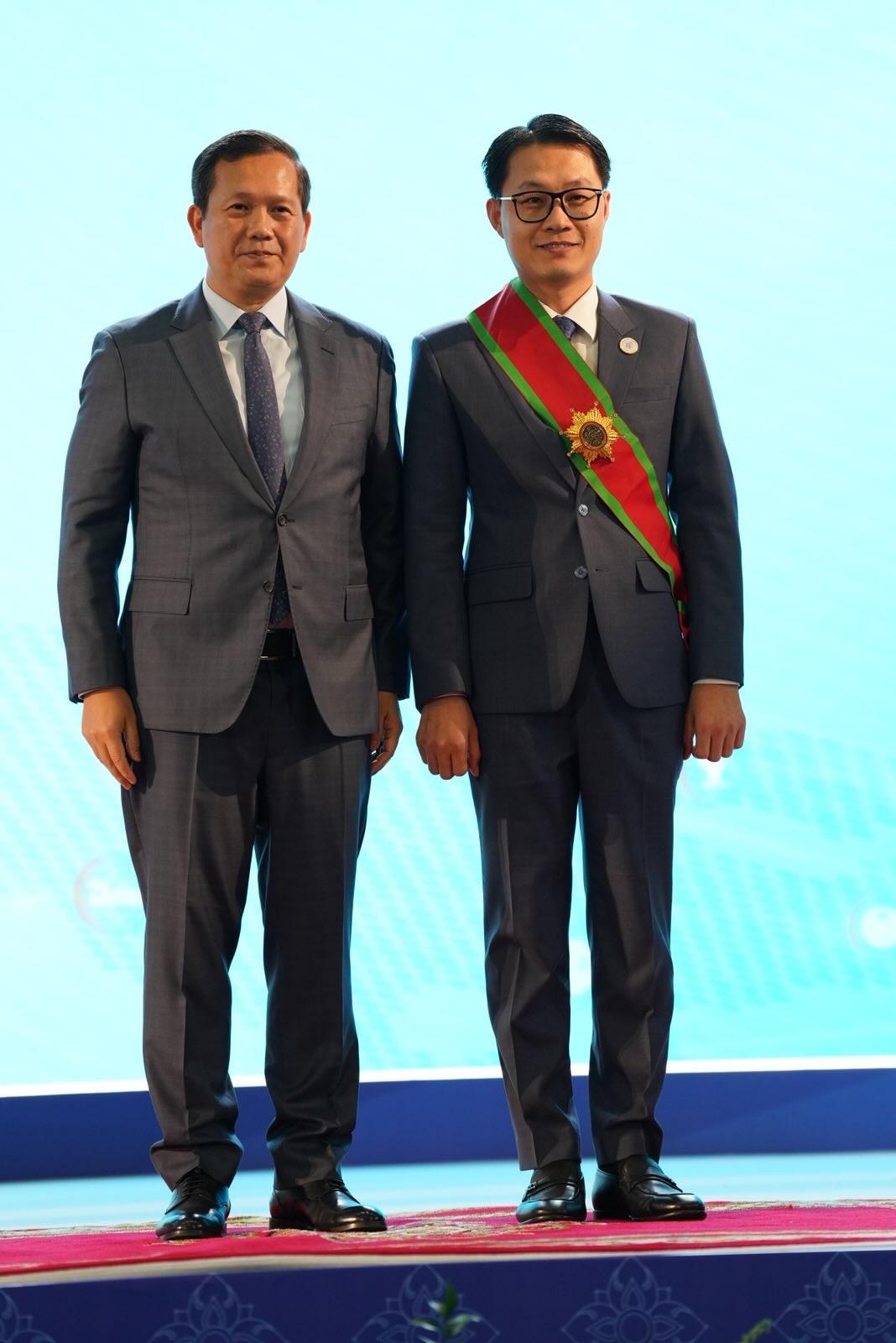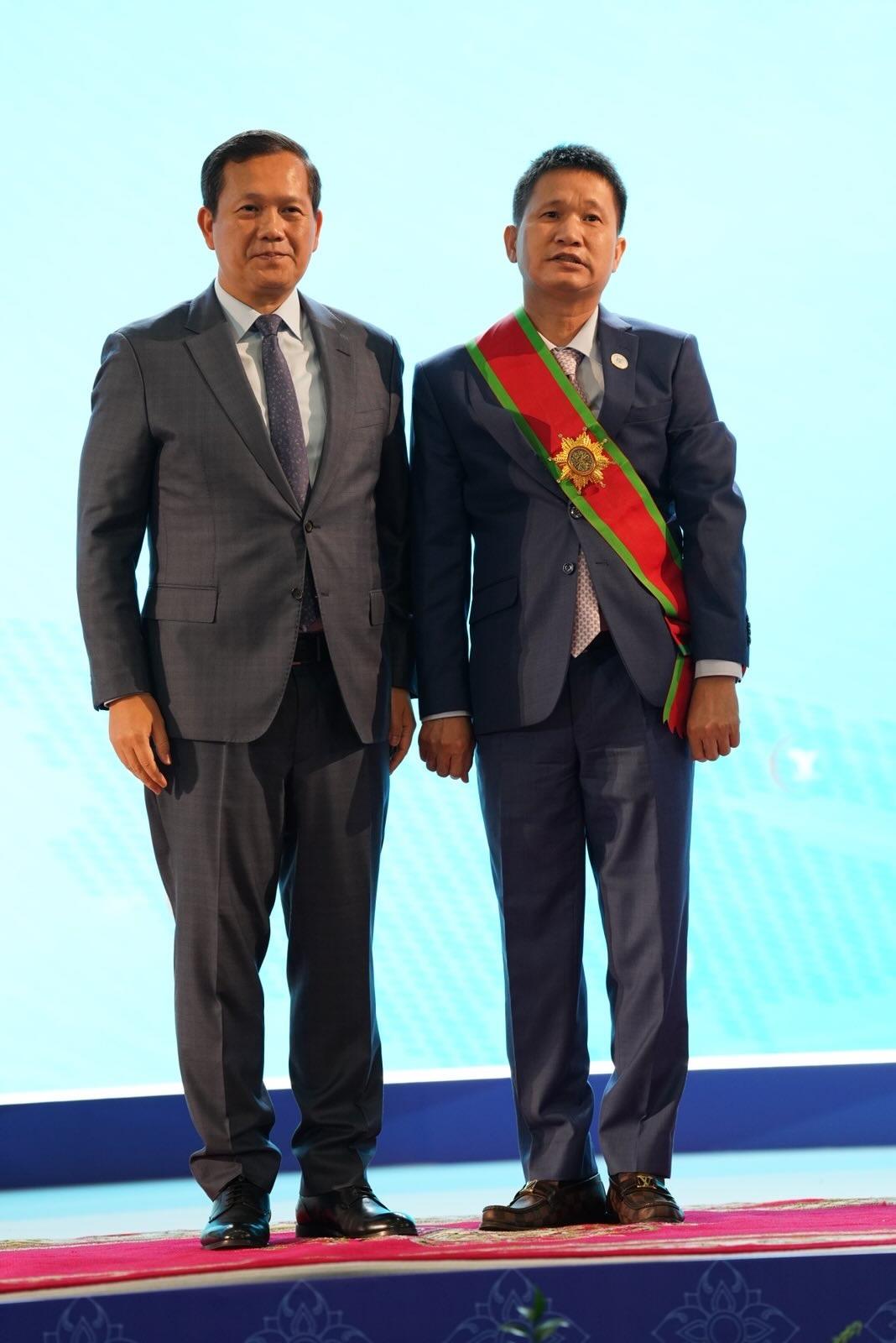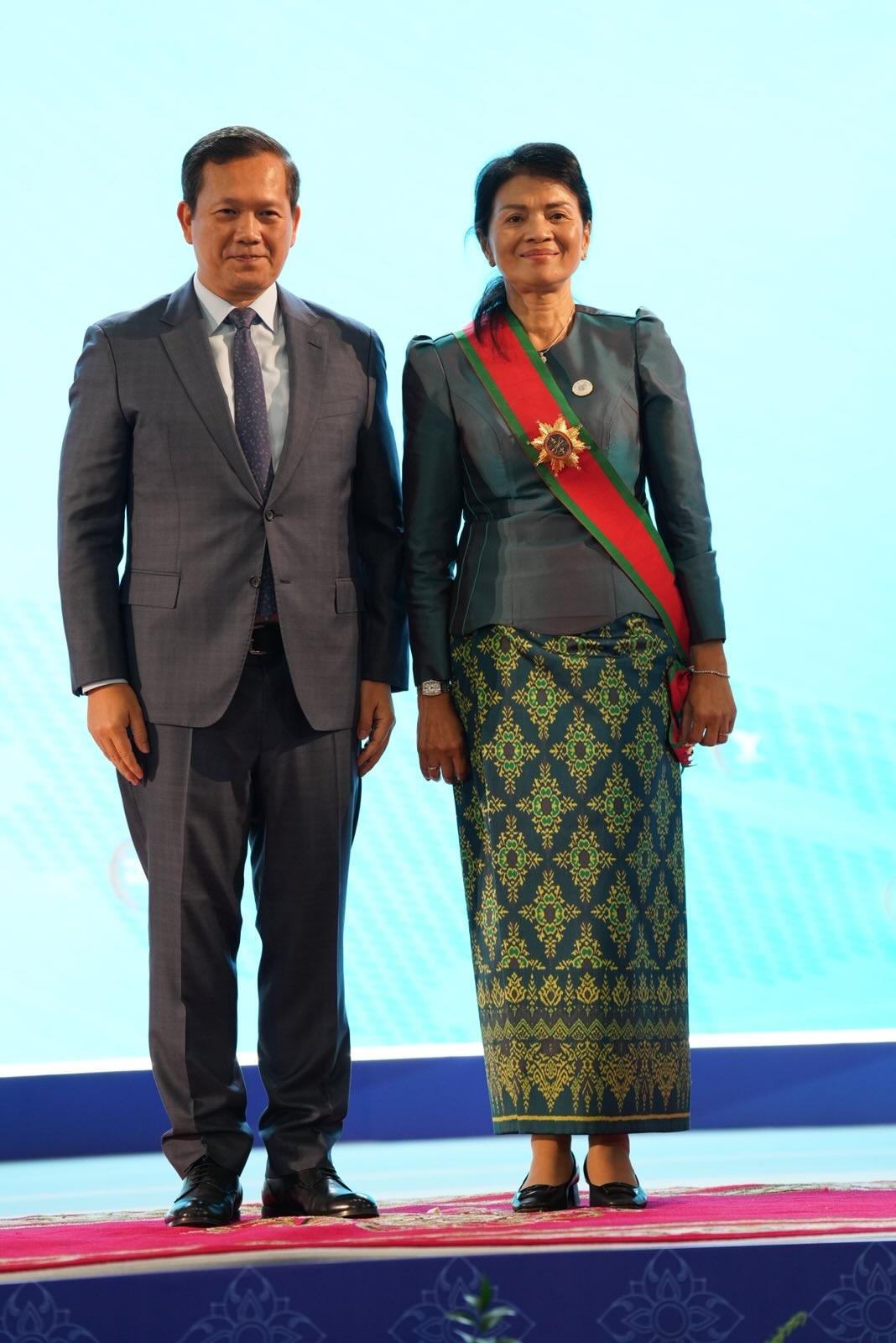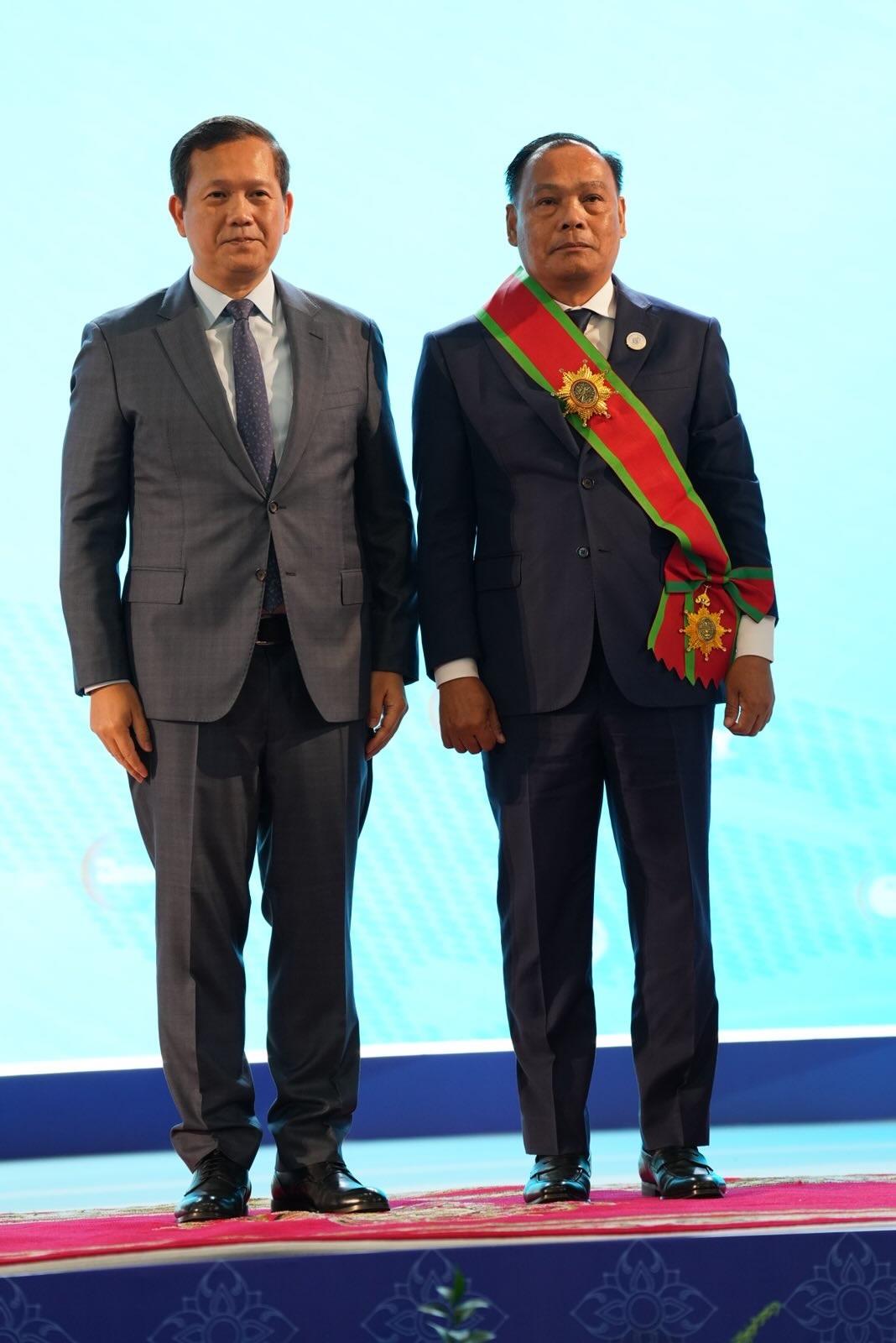Phnom Penh (FN), Feb. 6 – Cambodian Prime Minister Hun Manet said that Cambodian citizens, regardless of their location, now have access to affordable mobile phone and internet services, as well as digital devices.
The premier spoke on Thursday (Feb. 6) at the Ministry of Post and Telecommunications' conference to review 2020-2024 work on the journey toward digital transformation, and outline future directions.
“We are in an era where digital transformation is not merely an option but a necessity for every country, including Cambodia. Digital technology is dismantling traditional barriers and opening new opportunities. Today, every citizen, no matter where they are, has access to affordable mobile phone and internet services, along with digital devices,” the premier underscored.
Samdech Thipadei observed that beyond simply using smartphones, citizens are increasingly connected through various social networks, particularly the internet. He remarked that digital systems are becoming an integral part of Cambodians’ daily lives, to the extent that, in some cases, people feel closer to their phones than to their own relatives.
The premier stressed that, recognising the importance of digitalisation, the Royal Government continues to prioritise digital technology as a key response to the Fourth Industrial Revolution. The Royal Government has identified the development of the digital economy and society as part of the "fifth pentagon", aimed at accelerating national economic growth and laying a solid foundation for Cambodia’s future, with a vision extending to 2050.
Additionally, Samdech Thipadei underscored the Royal Government’s commitment to this digital transformation through the approval of the Cambodia Digital Economy and Social Policy Framework 2021-2035, which outlines a long-term vision to build a digital government, foster digital citizens, and promote digital businesses. Furthermore, the government has introduced the Cambodia Digital Government Policy 2022-2035, designed to enhance citizens’ quality of life and trust in public services by developing digital infrastructure, strengthening cybersecurity, and expanding digital public services.
=FRESH NEWS

